Friday, November 15 2024
 The beginner writer adage has been mentioned before, I know, but newbies are urged to “Write what you know.” And that’s a great way to begin because knowing the places or the jobs or what it’s like to be a mom etc. makes it a lot easier to write believable fiction. But after the first couple books things change. Unless you’re writing a series with the same nucleus of main characters, eventually, you have to start looking outside of the box you’re familiar with. Hallmark seems to get away with having the same small-town scene, usually snowy and close to the holidays and the characters always seem to be in bookstores, bakeries or bed and breakfasts. But the rest of us need to get a little more inventive. The beginner writer adage has been mentioned before, I know, but newbies are urged to “Write what you know.” And that’s a great way to begin because knowing the places or the jobs or what it’s like to be a mom etc. makes it a lot easier to write believable fiction. But after the first couple books things change. Unless you’re writing a series with the same nucleus of main characters, eventually, you have to start looking outside of the box you’re familiar with. Hallmark seems to get away with having the same small-town scene, usually snowy and close to the holidays and the characters always seem to be in bookstores, bakeries or bed and breakfasts. But the rest of us need to get a little more inventive.
XX
 Which leads to finding the right job for your characters. All your characters need some kind of career, unless they are old enough to be retired or still in school, but the ones you need to be most concerned about are the main ones. So, how do we choose? Which leads to finding the right job for your characters. All your characters need some kind of career, unless they are old enough to be retired or still in school, but the ones you need to be most concerned about are the main ones. So, how do we choose?
XX
 Sometimes it depends on the genre. If you’re writing suspense, police procedural, PI or international espionage, then the career is pretty much set and your next job will be making yourself familiar with what those jobs are like. Sometimes the genre doesn’t determine the career. I have a wonderful book titled: The Occupational Thesaurus – A Writer’s Guide to Jobs, Vocations and Careers, by Angela Ackerman and Becca Puglisi. This truly awesome reference not only outlines the career/job options, but it includes information like required training/education, useful skills and talents, helpful character traits, sources of friction, how this occupation might impact the characters and their needs, how to twist the stereotype and reasons why a character might choose this occupation. With a guide like this, if you already have a plot, and you have some ideas on occupations, you can look them up to see which best fits your plot or other characters and conflicts. Sometimes it depends on the genre. If you’re writing suspense, police procedural, PI or international espionage, then the career is pretty much set and your next job will be making yourself familiar with what those jobs are like. Sometimes the genre doesn’t determine the career. I have a wonderful book titled: The Occupational Thesaurus – A Writer’s Guide to Jobs, Vocations and Careers, by Angela Ackerman and Becca Puglisi. This truly awesome reference not only outlines the career/job options, but it includes information like required training/education, useful skills and talents, helpful character traits, sources of friction, how this occupation might impact the characters and their needs, how to twist the stereotype and reasons why a character might choose this occupation. With a guide like this, if you already have a plot, and you have some ideas on occupations, you can look them up to see which best fits your plot or other characters and conflicts.
XX
 Choosing the right career or job is critical to whether you plot works. If you have a long-distance trucker or a soldier trying to strike up a romance with a woman who hates to be left alone or left out – there will be serious conflict. Now the question is, will this conflict support or sink your plot? Sometimes it might be good to have two characters who have careers that create this kind of conflict which, in itself, becomes the plot or the story. Other times it might add pressure to the main plot. But there might also be times when the career choice is all wrong for the story you are writing. If your story is about someone who wants to be an entrepreneur, then turning them into an airline steward or a cop probably won’t work. Neither would someone who has zero fashion sense be much good at interior design or modeling, nor would a character who is shy do well as a real estate agent or a concierge in a classy hotel. Choosing the right career or job is critical to whether you plot works. If you have a long-distance trucker or a soldier trying to strike up a romance with a woman who hates to be left alone or left out – there will be serious conflict. Now the question is, will this conflict support or sink your plot? Sometimes it might be good to have two characters who have careers that create this kind of conflict which, in itself, becomes the plot or the story. Other times it might add pressure to the main plot. But there might also be times when the career choice is all wrong for the story you are writing. If your story is about someone who wants to be an entrepreneur, then turning them into an airline steward or a cop probably won’t work. Neither would someone who has zero fashion sense be much good at interior design or modeling, nor would a character who is shy do well as a real estate agent or a concierge in a classy hotel.
  
  
 
Once you’ve decided what kind of characters you need to people your story and support your plot, how do you break out of that box of writing what you know? Ask questions, visit job fairs, talk to friends and neighbors in the appropriate industry, shadow people in those careers, ask questions of perfect strangers if they are busy doing the job you need info about.
XX

When I started my mystery series, my main character was a female detective on the major crimes squad with the sheriff’s office. I’ve never been in law enforcement, nor been related or married to anyone who is. So, I started with taking the Citizen’s Law Enforcement Academy which turned out to be so comprehensive I learned how the whole department operated and could have included key characters who worked in dispatch, accounting, with the K-9s or on any of the special squads. But my heroine was to be a detective. So, I sat  down for a very, VERY lengthy lunch with the only female on my local sheriff’s department’s major crimes squad. Not only did she give me a clear vision of what her job was like, but she gave me ideas I might never have had on my own. She even made herself available to answer any questions that came up while I was writing the book and kept that promise. I followed this up with two ride-alongs which put me right in the car with them, experiencing a patrol deputy’s typical day. If I’d chosen to make my heroine a spy or an undercover deputy getting this kind of first-hand information might have been a whole lot harder, but there are always retirement homes full of people who would love to share old stories of their careers and you never know where that might lead. down for a very, VERY lengthy lunch with the only female on my local sheriff’s department’s major crimes squad. Not only did she give me a clear vision of what her job was like, but she gave me ideas I might never have had on my own. She even made herself available to answer any questions that came up while I was writing the book and kept that promise. I followed this up with two ride-alongs which put me right in the car with them, experiencing a patrol deputy’s typical day. If I’d chosen to make my heroine a spy or an undercover deputy getting this kind of first-hand information might have been a whole lot harder, but there are always retirement homes full of people who would love to share old stories of their careers and you never know where that might lead.
XX
 Not every career would have a course like the Citizen’s Law Enforcement Academy that I attended to fill that void in my personal experience, but shadowing someone in a career or just visiting their spaces and people watching is a start. If you want to set a story in an ER, then spend a day in one. If you share the reason for hanging around that doesn’t involve a medical emergency with the people who work there, you might be Not every career would have a course like the Citizen’s Law Enforcement Academy that I attended to fill that void in my personal experience, but shadowing someone in a career or just visiting their spaces and people watching is a start. If you want to set a story in an ER, then spend a day in one. If you share the reason for hanging around that doesn’t involve a medical emergency with the people who work there, you might be  amazed at how much they would be willing to share. In fact, almost everyone likes to talk about their jobs, both the good and rewarding parts and the awful stuff that just needs putting up with. Need your character to be a teacher? Ask one if you can follow them through a day or a week. Ask a commercial pilot what it’s like to sleep in a different city every other night, or a car salesman how it feels to get shot down more often than they watch the new car drive off the lot. There are lots of jobs you can learn about just by watching, but never just settle for the watching. Ask questions, and better yet, tell them you are a writer and your hero is whatever they are and ask if they would be willing to answer questions that might come up later. I have never been turned down when I’ve asked this of people. amazed at how much they would be willing to share. In fact, almost everyone likes to talk about their jobs, both the good and rewarding parts and the awful stuff that just needs putting up with. Need your character to be a teacher? Ask one if you can follow them through a day or a week. Ask a commercial pilot what it’s like to sleep in a different city every other night, or a car salesman how it feels to get shot down more often than they watch the new car drive off the lot. There are lots of jobs you can learn about just by watching, but never just settle for the watching. Ask questions, and better yet, tell them you are a writer and your hero is whatever they are and ask if they would be willing to answer questions that might come up later. I have never been turned down when I’ve asked this of people.

While Job Fairs are mostly aimed at showcasing careers to youngsters about to graduate from high school (or even college) this one place you’d get to visit booths representing a vast and varied array of careers. Some fairs, to be honest, are PR gigs, or political in nature, but people everywhere love to talk about their jobs, so, it might be a good place to find out what the education and training requirements would be as well as the expected pay scale and what kind of  companies hire etc. And any man or woman at a booth that’s not being swarmed with kids would be happy to share information with you. They might not have details like the book I mentioned above about personality traits and talents, but they could definitely fill you in on the good, bad and ugly about their careers, where the best colleges or training schools are for this job, what their day-to-day life is like and especially, given why they are there, the rewards of pursuing their career. There might also be military recruiters available, but they aren’t likely to tell you the really ugly part about a military career. For that, talk to a veteran. companies hire etc. And any man or woman at a booth that’s not being swarmed with kids would be happy to share information with you. They might not have details like the book I mentioned above about personality traits and talents, but they could definitely fill you in on the good, bad and ugly about their careers, where the best colleges or training schools are for this job, what their day-to-day life is like and especially, given why they are there, the rewards of pursuing their career. There might also be military recruiters available, but they aren’t likely to tell you the really ugly part about a military career. For that, talk to a veteran.
XX
 If you are writing historical novels, the whole career hunt will be different. Unless your book is set since the middle of the last century, your search will mean reading up on the history of the era, pinpointing jobs that fit your plot, and then researching what it was like in that particular era. There are still a few folks around who lived through WWII, but prior to that, it’s going to be reading research. Here I’d suggest journals when available or biographies. I’ve only written one historical prior to any living memory. My book was set during the American Revolutionary War. My absolute best resource was a book titled: The Spirit of Seventy-Six – The Story of the American Revolution as told by Participants. This book introduced each chapter with a summary of the events and ramifications, then proceeded to “show” the story through the eyes of those who lived them, via journals, diaries, letters, and official reports. While I learned a lot of details about the war I’d never learned in school, I also got a peek at what their lives and jobs were like. Be curious – read about the lives of people in your era, especially as it’s told by those who lived them. If you are writing historical novels, the whole career hunt will be different. Unless your book is set since the middle of the last century, your search will mean reading up on the history of the era, pinpointing jobs that fit your plot, and then researching what it was like in that particular era. There are still a few folks around who lived through WWII, but prior to that, it’s going to be reading research. Here I’d suggest journals when available or biographies. I’ve only written one historical prior to any living memory. My book was set during the American Revolutionary War. My absolute best resource was a book titled: The Spirit of Seventy-Six – The Story of the American Revolution as told by Participants. This book introduced each chapter with a summary of the events and ramifications, then proceeded to “show” the story through the eyes of those who lived them, via journals, diaries, letters, and official reports. While I learned a lot of details about the war I’d never learned in school, I also got a peek at what their lives and jobs were like. Be curious – read about the lives of people in your era, especially as it’s told by those who lived them.
XX
Whatever your reason for choosing the careers you do, whether it’s one you already know, or one you want to live vicariously, do the research, and turn your writing into a book your readers can’t put down. And be sure to check out what my fellow blog-hoppers have to say about this month’s topic.
XX
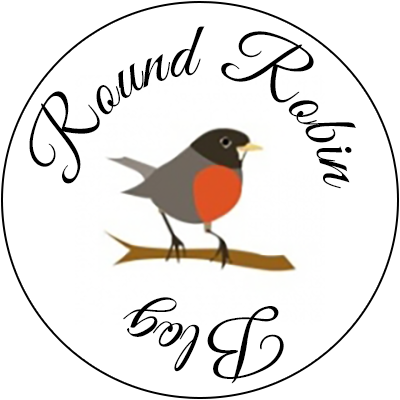 Helena Fairfax Helena Fairfax
Anne Stenhouse
Victoria Chatham
Connie Vines
Dr. Bob Rich
Diane Bator
Marci Baun
Friday, October 18 2024
 Some authors have been and always will be traditionally published. Some decided right from the get-go to self-publish. Then there are the hybrids. I’m one of those. Some authors have been and always will be traditionally published. Some decided right from the get-go to self-publish. Then there are the hybrids. I’m one of those.
XX
I wish I still had a traditional publisher. There are a lot of plusses. For one thing, I didn’t have to worry about finding editors or cover artists and formatters. I especially didn’t have to worry about marketing. I did do my share of self-promoting, but the publisher I was with had a woman I dubbed “The Energizer Bunny” of marketing and I appreciated all her efforts. Having a deadline was another plus as it kept me focused and on a timeline. I enjoyed being a part of my publishing house community and I’d still be there, except…..
XX
 My acquiring editor retired…. The head of my publishing house bought my next book, but with Deb gone, my manuscript was farmed out to a contract editor. There were several things I didn’t enjoy about this experience. The first was that she originally worked with a big NY publisher and she had a very VERY narrow view of the way a book needed to be written. I was asked to make changes I didn’t like or agree with, but having contracted my book, I was not given a choice. One of the biggest issues was that I'd carefully woven all the backstory my readers needed into my romance/time travel. My c My acquiring editor retired…. The head of my publishing house bought my next book, but with Deb gone, my manuscript was farmed out to a contract editor. There were several things I didn’t enjoy about this experience. The first was that she originally worked with a big NY publisher and she had a very VERY narrow view of the way a book needed to be written. I was asked to make changes I didn’t like or agree with, but having contracted my book, I was not given a choice. One of the biggest issues was that I'd carefully woven all the backstory my readers needed into my romance/time travel. My c ontract editor wanted it all taken out and put into a prologue. For one thing, I’ve known plenty of readers who routinely skip prologues and epilogues. For another it meant creating an action scene that had nothing to do with the story. As it turns out, readers didn’t care for it either. I submitted this book to the Florida Writer’s Literary Awards contest – a contest I’d placed silver in twice. While my time travel managed to move into the finals, all four of the judges panned the prologue and suggested that the book would have been far better had my backstory been woven into the plot. I knew my book and my readers better than the contract editor, it would seem. ontract editor wanted it all taken out and put into a prologue. For one thing, I’ve known plenty of readers who routinely skip prologues and epilogues. For another it meant creating an action scene that had nothing to do with the story. As it turns out, readers didn’t care for it either. I submitted this book to the Florida Writer’s Literary Awards contest – a contest I’d placed silver in twice. While my time travel managed to move into the finals, all four of the judges panned the prologue and suggested that the book would have been far better had my backstory been woven into the plot. I knew my book and my readers better than the contract editor, it would seem.
XX
 In addition to this, my Energizer Bunny had moved on to a bigger publishing house – and why wouldn’t she? She was talent, energy and a great salesman. But that left a newer, less intuitive and less experienced replacement in charge of marketing my new book. Sadly, it did not do nearly as well as any of my previous books and the head of acquisitions decided not to contract the next book in the series they had already released four books for. I opted to go indie. In addition to this, my Energizer Bunny had moved on to a bigger publishing house – and why wouldn’t she? She was talent, energy and a great salesman. But that left a newer, less intuitive and less experienced replacement in charge of marketing my new book. Sadly, it did not do nearly as well as any of my previous books and the head of acquisitions decided not to contract the next book in the series they had already released four books for. I opted to go indie.
XX
I found a good copy editor and I have a vigorous, candid critique group that was a great replacement for content editing. I was directed to a woman of great talent for creating good covers who not only read my manuscript to understand the story and get a feel for what the cover needed to convey, but she also took into consideration the covers for the previous four and kept the new covers similar in style and content. Now it was time to format and upload my book.
XX
 I hate to admit my age, but I have to confess, I grew up BEFORE computers. Kids that were born into this age of IT have a far easier time than I ever will understanding how things work online. I did my best, but still ran into problems. I was fortunate that a very nice man at Amazon was willing to reformat some of my images to fit their protocols. A fellow author helped me with some of my formatting issues, and after a long and stressful effort, my book was finally out there. I was thinking, at the time, that the next book would be easier. NOT SO! Everyone updated their software in between that first book and the second and the learning curve I thought I’d conquered, was out there again, perhaps even steeper than the first time. But I did get it done and book 6 in the series was released. I’ve since added paying for a professional in the field to format and upload my books to Amazon and Ingram. I hate to admit my age, but I have to confess, I grew up BEFORE computers. Kids that were born into this age of IT have a far easier time than I ever will understanding how things work online. I did my best, but still ran into problems. I was fortunate that a very nice man at Amazon was willing to reformat some of my images to fit their protocols. A fellow author helped me with some of my formatting issues, and after a long and stressful effort, my book was finally out there. I was thinking, at the time, that the next book would be easier. NOT SO! Everyone updated their software in between that first book and the second and the learning curve I thought I’d conquered, was out there again, perhaps even steeper than the first time. But I did get it done and book 6 in the series was released. I’ve since added paying for a professional in the field to format and upload my books to Amazon and Ingram.
XX
 Now the other stressful issue raised its head. I am NOT A SALESMAN. I am an author. I just want to write, not sell books. Every effort, from FB parties to give-aways to posts on all my various social media sites are an everyday slog that I HATE. You might think I’ve gotten better at it, but that hasn’t happened. I still hate it and I am no better at it now than I was five books ago. I just want to write. Not spend time figuring out how to sell what I write. Now the other stressful issue raised its head. I am NOT A SALESMAN. I am an author. I just want to write, not sell books. Every effort, from FB parties to give-aways to posts on all my various social media sites are an everyday slog that I HATE. You might think I’ve gotten better at it, but that hasn’t happened. I still hate it and I am no better at it now than I was five books ago. I just want to write. Not spend time figuring out how to sell what I write.
XX
If I could go back to being a traditionally published author, I’d do it in a heartbeat. On the plus side, however, once I've paid for the cover art, the copy editing and formatting, I get to keep ALL the proceeds from the sales.
XX
 Either way, it’s a good thing I’m not relying on income from my writing to support myself. In today’s world there are few authors who can say that their book sales do meet this goal. It would be nice to make a best seller list again, but even if I don’t, at least I still enjoy the whole story-telling process of writing a novel. I enjoy the research that goes into each book and I love creating new characters and throwing them to the wolves so I can watch them figure out how to save themselves. And I love being a published author – both traditional and indie. Either way, it’s a good thing I’m not relying on income from my writing to support myself. In today’s world there are few authors who can say that their book sales do meet this goal. It would be nice to make a best seller list again, but even if I don’t, at least I still enjoy the whole story-telling process of writing a novel. I enjoy the research that goes into each book and I love creating new characters and throwing them to the wolves so I can watch them figure out how to save themselves. And I love being a published author – both traditional and indie.
XX
Check out some of our other Round Robin Blog Hoppers and see how they get published and what they like or don’t like about the business end of writing.
XX
 Connie Vines Connie Vines
Bob Rich
Diane Bator
Victoria Chatham
Helena Fairfax
Saturday, September 21 2024
 Can you believe it's September already and time for another Blog Hop? This month we are going to discuss the wisdom or experience of trying to write in a whole new genre. Can you believe it's September already and time for another Blog Hop? This month we are going to discuss the wisdom or experience of trying to write in a whole new genre.
XX
 Some writers swear that you should find your niche and stick with it. If you’re traditionally published and have an editor they will likely echo this advice since they prefer a known seller to an unknown possibility. And for many authors, this is likely wise advice because each genre has its quirks and the readers their expectations and it’s not like once you’ve learned to ride one bike, you can ride any bike. Think of it more like, you learned how to ride your training bike first but the day your dad took the training wheels off, things were a little trickier. Or, once you’ve completely mastered the two-wheeler, try a unicycle. It really is a whole new skill set. Some writers swear that you should find your niche and stick with it. If you’re traditionally published and have an editor they will likely echo this advice since they prefer a known seller to an unknown possibility. And for many authors, this is likely wise advice because each genre has its quirks and the readers their expectations and it’s not like once you’ve learned to ride one bike, you can ride any bike. Think of it more like, you learned how to ride your training bike first but the day your dad took the training wheels off, things were a little trickier. Or, once you’ve completely mastered the two-wheeler, try a unicycle. It really is a whole new skill set.
XX
 But then there are writers like me who have an itch to try different stuff, be it writing or just life in general. I started my family young and grew into motherhood as my kids grew up. But when the last one graduated from college, my first thought was “What Next?” Well, my first what-next turned out to be jumping out of perfectly good airplanes. Which was definitely a whole new skill set. But I loved the challenge and the experience of flying through the air first like superman, then the extraordinary ride under canopy so far above the earth the only sound was the soft flutter of the parachute and I could see for miles and miles. I got my license at a jump zone on the border of New Hampshire and Maine, yet I could see Mount Washington to the north and the Atlantic to the east. Absolutely amazing. But then there are writers like me who have an itch to try different stuff, be it writing or just life in general. I started my family young and grew into motherhood as my kids grew up. But when the last one graduated from college, my first thought was “What Next?” Well, my first what-next turned out to be jumping out of perfectly good airplanes. Which was definitely a whole new skill set. But I loved the challenge and the experience of flying through the air first like superman, then the extraordinary ride under canopy so far above the earth the only sound was the soft flutter of the parachute and I could see for miles and miles. I got my license at a jump zone on the border of New Hampshire and Maine, yet I could see Mount Washington to the north and the Atlantic to the east. Absolutely amazing.
XX
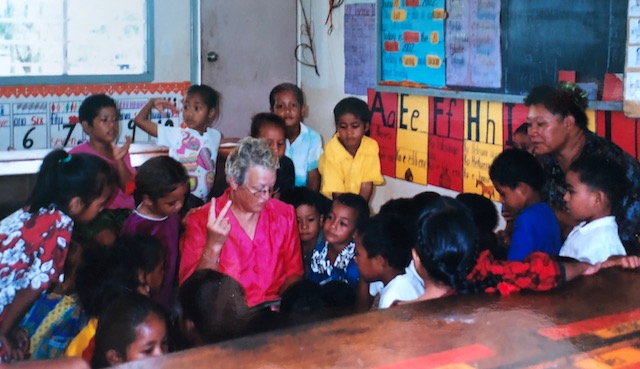 But parachuting, I quickly learned, was a sport for daredevils. While I loved the canopy ride the best, all the far younger jumpers preferred the 125 mph plunge through space while doing tricks, and then, with high performance chutes, doing more stunts under the canopy. So, I was still looking for what next. I ended up joining the Peace Corps But parachuting, I quickly learned, was a sport for daredevils. While I loved the canopy ride the best, all the far younger jumpers preferred the 125 mph plunge through space while doing tricks, and then, with high performance chutes, doing more stunts under the canopy. So, I was still looking for what next. I ended up joining the Peace Corps  and was stationed in the South Pacific where I not only taught English as a Second language (I was not a teacher before that), but got to live in a very different culture, learn new craft skills, swim in beautiful turquoise seas over coral reefs with colorful fish, crawl through lava tubes and climb volcanic mountains, crew on yacht’s that visited our humble island and so much more. And the kids – they were the best part of that whole experience. and was stationed in the South Pacific where I not only taught English as a Second language (I was not a teacher before that), but got to live in a very different culture, learn new craft skills, swim in beautiful turquoise seas over coral reefs with colorful fish, crawl through lava tubes and climb volcanic mountains, crew on yacht’s that visited our humble island and so much more. And the kids – they were the best part of that whole experience.
XX
 But before I left, I had friends my own age (in the 50s) who were sure I’d lost my mind. Give up my beautiful big home and live in God only knew what kind of conditions? Travel to a place where I didn’t know the language? Do a job I’d never done before? Thankfully, I didn’t take their advice because, if I had, I’d have missed the most fantastic experiences of my life. But before I left, I had friends my own age (in the 50s) who were sure I’d lost my mind. Give up my beautiful big home and live in God only knew what kind of conditions? Travel to a place where I didn’t know the language? Do a job I’d never done before? Thankfully, I didn’t take their advice because, if I had, I’d have missed the most fantastic experiences of my life.
XX
So, here I am, a published author with a nice editor and a comfortable publisher and a relatively successful romance series. Why would I want to try something new? For the same reason I jumped out of airplanes and signed up for the Peace Corps. I was eager for a new challenge. A fellow member of a romance writer’s group I was part of at the time mentioned having participated in the Citizen’s Law Enforcement Academy. At the time, I didn’t see the point, but then, as my itch for a new challenge grew, I decided to try writing a mystery. Specifically, a mystery set here in this lovely city steeped in history that I now called home. So, I 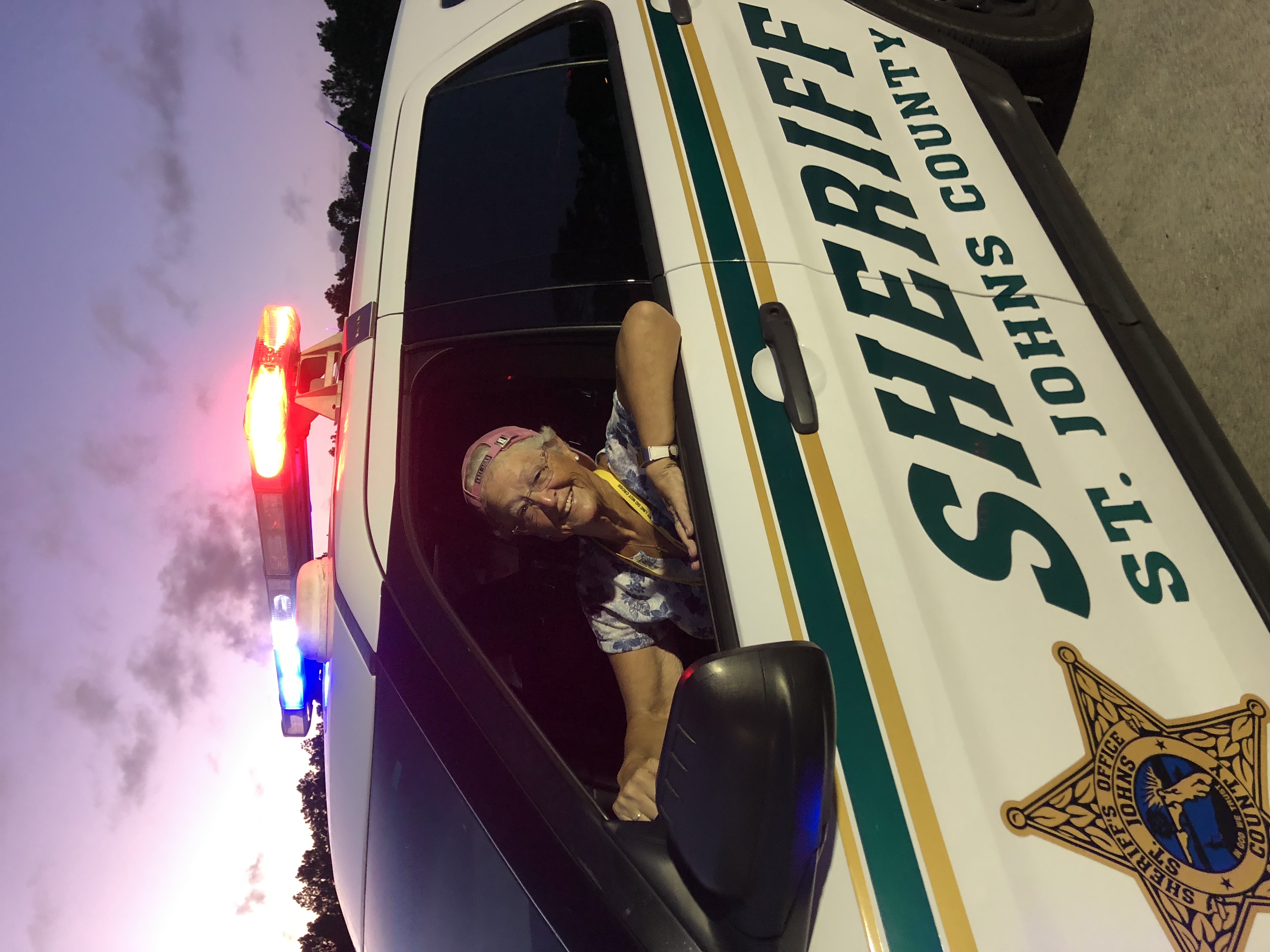 signed up for the academy. signed up for the academy.
XX
Which is where the first challenge came in. Romance, with the exception of my one time-travel, didn’t require much in the way of research. But now I was learning how the sheriff’s office does business and what a deputy’s life and work are like. An eye-opener I’d recommend to everyone even if you don’t plan on writing a mystery since it’s an awesome way to gain a healthy respect for law enforcement in general and the demands and sacrifices of the men and women who serve.
XX
 The second challenge was HOW to write my story. In my romances, I was what they call a Pantser – meaning I wrote by the seat of my pants. I created my characters, the main ones with multi-page dossiers, so I knew who the players were. I knew what the basic conflict was, but I had zero outline or plotting before I sat down to write. I threw my hero and heroine into their respective trial by fire situations and let them take me with them on the journey to resolution and their happy-ever-after. But the mystery genre doesn’t lend itself to this approach. The second challenge was HOW to write my story. In my romances, I was what they call a Pantser – meaning I wrote by the seat of my pants. I created my characters, the main ones with multi-page dossiers, so I knew who the players were. I knew what the basic conflict was, but I had zero outline or plotting before I sat down to write. I threw my hero and heroine into their respective trial by fire situations and let them take me with them on the journey to resolution and their happy-ever-after. But the mystery genre doesn’t lend itself to this approach.
XX
 For one thing, you have to know: Who did it? Why? With What? How? And Where? All ahead of time. And you also need a few red herrings to toss into the mix to keep the readers guessing until the end. But where do those red herrings appear? And when and how do you reveal the rest of the mystery? Suddenly I had to learn how to plot a book. I attended several workshops on the topic and I’ve got a few great books on my shelf, but it was still a HUGE challenge. Plotting my whole story out before I start. Really??? For one thing, you have to know: Who did it? Why? With What? How? And Where? All ahead of time. And you also need a few red herrings to toss into the mix to keep the readers guessing until the end. But where do those red herrings appear? And when and how do you reveal the rest of the mystery? Suddenly I had to learn how to plot a book. I attended several workshops on the topic and I’ve got a few great books on my shelf, but it was still a HUGE challenge. Plotting my whole story out before I start. Really???
XX
 Fortunately, I do enjoy research, though, because that part of the new genre I enjoyed. I loved the whole academy experience as well as two ride-alongs, one with a very nice guy and one with a female deputy who happened to be a K-9 officer. So, I got to ride along with a K-9 while I was at it. And then there was a very long lunch with the only female detective on the major crimes squad and all my interactions with her whenever I needed a question answered later. Fortunately, I do enjoy research, though, because that part of the new genre I enjoyed. I loved the whole academy experience as well as two ride-alongs, one with a very nice guy and one with a female deputy who happened to be a K-9 officer. So, I got to ride along with a K-9 while I was at it. And then there was a very long lunch with the only female detective on the major crimes squad and all my interactions with her whenever I needed a question answered later.
XX
So, that’s one of the challenges of trying a new genre – the research. Another bit of wisdom tossed to new writers is “Write what you know.” So, if you happen to be a retired military pilot than writing a series featuring military pilots is probably a great place to start. If you are or have been in law enforcement, then writing  mystery or police procedurals would be an easy start. Likewise, if you teach or have raised kids, stories about kids has a lot of built in knowledge. But eventually, no matter what genre you write in, you have to start branching out. For instance, in romance the basic story of boy meets girl and they can’t get together for some reason, how they overcome that reason etc is pretty much going to stay the same. How a detective goes about solving a crime and how the current laws might or might not be helpful along the way is knowledge you have without going after it. But not every character can have the same career. Not every murder has the same riddle. Not every conflict is going to have the same solution. So, perhaps research is here to stay even if you stick to the same genre. But do consider the scope of research you will be required to do if you choose a new genre. mystery or police procedurals would be an easy start. Likewise, if you teach or have raised kids, stories about kids has a lot of built in knowledge. But eventually, no matter what genre you write in, you have to start branching out. For instance, in romance the basic story of boy meets girl and they can’t get together for some reason, how they overcome that reason etc is pretty much going to stay the same. How a detective goes about solving a crime and how the current laws might or might not be helpful along the way is knowledge you have without going after it. But not every character can have the same career. Not every murder has the same riddle. Not every conflict is going to have the same solution. So, perhaps research is here to stay even if you stick to the same genre. But do consider the scope of research you will be required to do if you choose a new genre.
XX
 The next challenge is. READ READ READ – in whatever genre you are considering trying, read books by best-selling authors in those genres, because one of the most important things you need to know is: What is the reader expectation? What kind of resolution will your new audience expect? I’ve heard the old saw on murder mysteries is that you can kill anyone, just don’t kill the dog. Which is probably pretty true. The poor dog didn’t do anything to deserve it so the reader isn’t going to be happy if the dog dies. If you are writing thrillers there The next challenge is. READ READ READ – in whatever genre you are considering trying, read books by best-selling authors in those genres, because one of the most important things you need to know is: What is the reader expectation? What kind of resolution will your new audience expect? I’ve heard the old saw on murder mysteries is that you can kill anyone, just don’t kill the dog. Which is probably pretty true. The poor dog didn’t do anything to deserve it so the reader isn’t going to be happy if the dog dies. If you are writing thrillers there  will be an expectation for a nail-biting action throughout the story that isn’t resolved until the very end. In a romance there is ALWAYS a happy ever after. Spies need to be clever and deceit always a part of the plot, yet always a surprise. Paranormal has its own set of expectations in a variety of sub-genres from vampires to time travel. Even if you decide on non-fiction, depending on the area you choose, there are expectations that need to be met. And it’s imperative as the author of this new story to know what your readers expect so you won’t disappoint them. will be an expectation for a nail-biting action throughout the story that isn’t resolved until the very end. In a romance there is ALWAYS a happy ever after. Spies need to be clever and deceit always a part of the plot, yet always a surprise. Paranormal has its own set of expectations in a variety of sub-genres from vampires to time travel. Even if you decide on non-fiction, depending on the area you choose, there are expectations that need to be met. And it’s imperative as the author of this new story to know what your readers expect so you won’t disappoint them.
XX
 And that’s my advice on trying a new genre. It’s not for everyone, but it is an adventure. And yet, it should not be an adventure into the unknown. If you decide to try it, do your homework, then go get ‘em and have fun along the way. And check out what my fellow-blog-hoppers have to offer on the topic. And that’s my advice on trying a new genre. It’s not for everyone, but it is an adventure. And yet, it should not be an adventure into the unknown. If you decide to try it, do your homework, then go get ‘em and have fun along the way. And check out what my fellow-blog-hoppers have to offer on the topic.
XX
 Bob Rich Bob Rich
Anne Stenhouse
Connie Vines
Victoria Chatham
Saturday, August 24 2024
 We’ve all been there – either as authors, or as readers, plowing through a long narrative of information that seems important, but drags the action to a halt. As an author, we want to make sure the reader knows everything we want them to know about a person, a place or an event that we are convinced they need to know. As a reader, we’ve been caught in these narratives wondering when the author is going to get back to the action. Even worse, is when much of all that narrative isn’t even needed. I don’t know about you, but I have a limited amount of time for reading and I’m not eager to waste it reading screeds of stuff I don’t need to know. One of my favorite authors, who wrote one of my most favorite books of all time, has turned into a huge info-dumping writer and I’ve stopped reading her 300 page stories that come packaged in 900 page books. We’ve all been there – either as authors, or as readers, plowing through a long narrative of information that seems important, but drags the action to a halt. As an author, we want to make sure the reader knows everything we want them to know about a person, a place or an event that we are convinced they need to know. As a reader, we’ve been caught in these narratives wondering when the author is going to get back to the action. Even worse, is when much of all that narrative isn’t even needed. I don’t know about you, but I have a limited amount of time for reading and I’m not eager to waste it reading screeds of stuff I don’t need to know. One of my favorite authors, who wrote one of my most favorite books of all time, has turned into a huge info-dumping writer and I’ve stopped reading her 300 page stories that come packaged in 900 page books.
XX
So, how do we avoid this dreaded info dump?

The first question I ask myself is: “Does the reader really, really need to know this?” This might happen while I’m writing, but more often comes in my first major edit when I realize I’ve got a long narrative information dump. I review all the details revealed and start asking the relevant question about each one. If I am working on a mystery, there might be some details that the reader needs to know. But perhaps not served up on a silver platter all at once, instead of slipped in somewhere so when the mystery is finally solved, they nod their head and think, yeah, that makes sense, now.
XX
 Same goes for any genre really. If it’s a romance, the things that make a heroine attracted to a hero are things the reader should see, but not dumped all at once up front, but again, slipped in here and there as the relationship develops. She might take notice of how he treats an old man struggling to make things happen. Or she shakes her head in amazement when she discovers him doing her dishes. Or that he calls his mother every Sunday night just to say hi. There’s nothing wrong with her admiring a healthy and attractive physique either, but that’s not enough to make a real romance happen. It’s the little things that add up as the love story unfolds. Same goes for any genre really. If it’s a romance, the things that make a heroine attracted to a hero are things the reader should see, but not dumped all at once up front, but again, slipped in here and there as the relationship develops. She might take notice of how he treats an old man struggling to make things happen. Or she shakes her head in amazement when she discovers him doing her dishes. Or that he calls his mother every Sunday night just to say hi. There’s nothing wrong with her admiring a healthy and attractive physique either, but that’s not enough to make a real romance happen. It’s the little things that add up as the love story unfolds.
XX
Ditto with an action/adventure. For instance, your hero is claustrophobic. And eventually he’s going to be stuck in a stalled elevator where he’s going to have to control his panic to get the job done. But instead of introducing this fact along with his physical description, what he does for a living, where he lives, who his friends are etc, it just needs to be dropped in along the way so the reader will suddenly feel his angst when that damned elevator stalls. On the other hand, all that info I just outlined – much of that the reader can figure out along the way or doesn’t need to know at all.
XX
 As far as the claustrophobia goes. You could explain this critical detail by telling this story. Keith’s big brother Jay hadn’t always been such a great guy. Back when Keith was just seven, Jay thought it would be funny to lock Keith in their bedroom closet. At first it was just dark and scary, but then Jay started teasing him through the door about the spiders he’d seen earlier that week. Then had come the details about how the monsters who live under beds at night spend their days in closets so little boy’s mothers wouldn’t sweep them away with the dust when they cleaned the room. Jay had sort of relented after what felt like hours and slipped a skinny flashlight thingy his mother kept on the refrigerator under the door. Keith had welcomed the light until Jay shoved a page under the door with a story about a little kid who turned into a skeleton because he didn’t eat for days. Then the flashlight had died. And Jay had gone off, leaving Keith still trapped in the closet. It wasn’t even daytime anymore because there was no more hint of light seeping in under the door and the room outside was eerily quiet. By the time Keith’s mother found him, Keith had wet his pants, much to his shame, and he’d had nightmares for years afterward. As far as the claustrophobia goes. You could explain this critical detail by telling this story. Keith’s big brother Jay hadn’t always been such a great guy. Back when Keith was just seven, Jay thought it would be funny to lock Keith in their bedroom closet. At first it was just dark and scary, but then Jay started teasing him through the door about the spiders he’d seen earlier that week. Then had come the details about how the monsters who live under beds at night spend their days in closets so little boy’s mothers wouldn’t sweep them away with the dust when they cleaned the room. Jay had sort of relented after what felt like hours and slipped a skinny flashlight thingy his mother kept on the refrigerator under the door. Keith had welcomed the light until Jay shoved a page under the door with a story about a little kid who turned into a skeleton because he didn’t eat for days. Then the flashlight had died. And Jay had gone off, leaving Keith still trapped in the closet. It wasn’t even daytime anymore because there was no more hint of light seeping in under the door and the room outside was eerily quiet. By the time Keith’s mother found him, Keith had wet his pants, much to his shame, and he’d had nightmares for years afterward.
XX
 What if, instead of the previous info dump, you just said: What if, instead of the previous info dump, you just said:
XX
Keith was a Navy Seal. He’d been through hell week and survived. He’d been on assignments that would have given most men nightmares for the rest of their lives. He wasn’t afraid of anything. Well, except for small places, thanks to his big brother shutting him a closet for the fun of it. That still gave him nightmares.
XXX
That second option tells the reader just enough to show Keith’s possible Archilles heel, but doesn’t slow the rest of the action down in the telling.
XX
 If you’re writing a mystery where the killer is a sweet old lady who everyone agrees wouldn’t hurt a fly, it isn’t necessary to go into her current craze with visiting the local gun range and perfecting her aim with a variety of firearms, along with her prizes in competition. But you might put a small trophy on her mantle that an investigator (law enforcement, PI or just an amateur sleuth) can find and take note of later in the story when things begin to click. If you’re writing a mystery where the killer is a sweet old lady who everyone agrees wouldn’t hurt a fly, it isn’t necessary to go into her current craze with visiting the local gun range and perfecting her aim with a variety of firearms, along with her prizes in competition. But you might put a small trophy on her mantle that an investigator (law enforcement, PI or just an amateur sleuth) can find and take note of later in the story when things begin to click.
XX
If you’re portraying the oldest sister in a big family who always felt responsible for her siblings, it’s not needed to outline the whole family and why she always felt each of her siblings needed her guidance. Instead, you can just have one of those siblings make a comment at some point along the lines of, “We grew up Sylvia. We don’t need you watching over us every minute anymore.”
XX
 How about this passage: Suzie skipped down the sidewalk making sure not to step on any cracks. The old ditty about breaking your mother’s back repeated itself over in her head. Did stepping on a crack really break anyone’s back? She’d never heard of anyone’s mother having a broken back, and she knew plenty of kids who stepped on cracks all the time. It was all nonsense. Black cats didn’t bring bad luck and neither did walking under ladders. It was just stuff people made up to explain things they didn’t know. Besides, Old Mrs. Smith was taking forever to push that walker with the bright green tennis balls on the legs along the sidewalk which gave Suzie plenty of time to consider the whole broken back deal. Finally, out of patience, Suzie took aim and stepped down squarely on How about this passage: Suzie skipped down the sidewalk making sure not to step on any cracks. The old ditty about breaking your mother’s back repeated itself over in her head. Did stepping on a crack really break anyone’s back? She’d never heard of anyone’s mother having a broken back, and she knew plenty of kids who stepped on cracks all the time. It was all nonsense. Black cats didn’t bring bad luck and neither did walking under ladders. It was just stuff people made up to explain things they didn’t know. Besides, Old Mrs. Smith was taking forever to push that walker with the bright green tennis balls on the legs along the sidewalk which gave Suzie plenty of time to consider the whole broken back deal. Finally, out of patience, Suzie took aim and stepped down squarely on  the next crack she saw. the next crack she saw.
XX
This paints a very accurate picture of a kid walking home from school, but is any of it really important to the story? It only becomes important if the old lady with the walker going at a snail’s pace ahead of Suzie suddenly collapses to the ground at the exact moment Suzie steps on that crack. If Suzie just waves to the woman and hurries past her to get home for the snack her mother always leaves out for her, then none of it was important and the same picture could have been painted simply: Suzie skipped, careful not to step on any cracks. She didn’t want to hurt her mother if the old saying was true. Old Mrs. Smith pottered along and Suzie was equally careful not to bump into her as she hurried past.
X
There are som e action writers who are clearly in love with guns of all kinds and makes and every single weapon in the story is introduced in mind-boggling detail. For readers who love guns and details about them this is fine, but for most of the rest of us, the details can get tedious and seriously slow the action down. If someone has a pistol aimed at your face, the gaping bore is all you’re going to see and worry about, not the hand packed shells, or the caliber or the manufacturer, or for that matter, if he’s close enough, not even the possible expertise of the person holding you at gunpoint. e action writers who are clearly in love with guns of all kinds and makes and every single weapon in the story is introduced in mind-boggling detail. For readers who love guns and details about them this is fine, but for most of the rest of us, the details can get tedious and seriously slow the action down. If someone has a pistol aimed at your face, the gaping bore is all you’re going to see and worry about, not the hand packed shells, or the caliber or the manufacturer, or for that matter, if he’s close enough, not even the possible expertise of the person holding you at gunpoint.
XX
 Clichés show up in books for a reason – not always warranted as there are often far more entertaining ways of describing something – but they do convey a known quantity. For instance, you can simply state that the German Shepherd’s ears were pricked forward and he was all business. The whole world knows what a German Shepherd looks like and that they are serious working dogs. The AKC definition of his build, looks and abilities don’t need to be enumerated. Or, the approaching storm was heralded by the ominous clouds and the sudden snapping of the flag on a nearby pole. Clichés show up in books for a reason – not always warranted as there are often far more entertaining ways of describing something – but they do convey a known quantity. For instance, you can simply state that the German Shepherd’s ears were pricked forward and he was all business. The whole world knows what a German Shepherd looks like and that they are serious working dogs. The AKC definition of his build, looks and abilities don’t need to be enumerated. Or, the approaching storm was heralded by the ominous clouds and the sudden snapping of the flag on a nearby pole.
XX
So, that’s the first thing – determining which of the details are most important. In that last sentence, I could have discussed the growing bank of inky black clouds, the disappearance of the sun, the initial spatters of rain, or someone putting up an umbrella or even the weather report the character had heard the night before, or any of the many signs of an approaching storm. With this one sentence, I’ve put the reader right there in a world he or she has been in before and doesn’t need the lengthy detailed description.
XX
Sometimes all the details do need to be revealed - eventually. But it’s still better to reveal them one or two at a time as needed.
 XX XX
Going back to Sylvia – the bossy older sister. If this is a family saga and all the family will eventually appear, then, maybe the reader does need to know that Edwin had been sickly as a kid and Sylvia always worried about him. And that John would have forgotten his head had it not been firmly attached to his shoulders. Or that Emily seemed to have the worst taste in boys, right from the time she first noticed them through three failed marriages to the piece of work she most recently brought home. But even then, not all of that needs to be dumped in one big narrative at the start of the story. Much of it can be shown (Note that word SHOWN) in actions. She could constantly be reminding John about things in dialog and he can be seen rolling his eyes every time. Edwin is a strapping 6’6” man who clearly works out in a gym, but who takes his big sister’s constant queries about his health in stride and never loses his patience. And it quickly becomes apparent that Sylvia no longer needs to worry about them, it’s just a habit. And that Emily is going to be the one the reader needs to fret over.
XX
 Dialog, thoughts, dreams, snatches of memory are all great ways to plant details the reader needs to know without the long narrative passages. Even items, like the sharp-shooter trophy, or a diploma from Harvard on a janitor’s wall can show the reader things they will need to know before the end of the book. My best advice to new writers is to first determine which details really do need to be included and then look for unique ways to show them throughout the story, interspersing them with the action. Dialog, thoughts, dreams, snatches of memory are all great ways to plant details the reader needs to know without the long narrative passages. Even items, like the sharp-shooter trophy, or a diploma from Harvard on a janitor’s wall can show the reader things they will need to know before the end of the book. My best advice to new writers is to first determine which details really do need to be included and then look for unique ways to show them throughout the story, interspersing them with the action.
XX
Now you surely want to check out the rest of our blog hoppers to see how they handle informing their readers without the “info dump.”
XX
 Anne Stenhouse Anne Stenhouse
Connie Vines
Diane Bator
Helena Fairfax
Bob Rich
Saturday, July 20 2024
Stress in your life – how does it affect your writing, or how do you write despite the stress?
 XX XX
As I write this, I am supposed to be on vacation in a lovely little 200-year-old cottage I rent every summer in Maine. Since I am here for 5 weeks, I have often written the rough draft or most of one for a new book. This year is the exception and I have to admit, it might be stress or just utter distraction while I deal with stressful issues.
XX
 It began with no filtered water which also meant no ice cubes. I even had to go out and purchase ice cube trays since the owner just assumes the fridge will make them. The plumber has been twice but still no filtered water and even though I’m pretty flexible, this water tastes brackish so I’ve been purchasing drinking water. Then we discovered the coffee maker leaks faster than it can brew a cup. Add to this, our barbeque had to be cooked inside over the stove when the grill wouldn’t light and gas was leaking when turned on. Yes, I It began with no filtered water which also meant no ice cubes. I even had to go out and purchase ice cube trays since the owner just assumes the fridge will make them. The plumber has been twice but still no filtered water and even though I’m pretty flexible, this water tastes brackish so I’ve been purchasing drinking water. Then we discovered the coffee maker leaks faster than it can brew a cup. Add to this, our barbeque had to be cooked inside over the stove when the grill wouldn’t light and gas was leaking when turned on. Yes, I  bought a small charcoal grill for the remainder of my stay. If this wasn’t enough, on July 4th the entire water system failed. The earliest the plumber could come was the next morning it being a holiday… Only plus here is that the ocean is just a couple hundred yards away. Of course, the cottage had no buckets so I had to borrow one half filled with fresh water so we could wash our hands and another to bail sea water to flush toilets with. bought a small charcoal grill for the remainder of my stay. If this wasn’t enough, on July 4th the entire water system failed. The earliest the plumber could come was the next morning it being a holiday… Only plus here is that the ocean is just a couple hundred yards away. Of course, the cottage had no buckets so I had to borrow one half filled with fresh water so we could wash our hands and another to bail sea water to flush toilets with.  We even washed our dishes in the sea. We even washed our dishes in the sea.
XX
 Two days ago, we had a heavy rain storm and guess what? A leak appeared in the living room roof. Good thing I’ve been coming here for years or this might have been the LAST year I came. It turned out the big flood earlier this spring had corroded the connections to the well pump and the plumber was able to fix that issue. The rest the owner will have to deal with later. Two days ago, we had a heavy rain storm and guess what? A leak appeared in the living room roof. Good thing I’ve been coming here for years or this might have been the LAST year I came. It turned out the big flood earlier this spring had corroded the connections to the well pump and the plumber was able to fix that issue. The rest the owner will have to deal with later.
XX
 If that were my only stress – I might be smiling and still writing, but my car, one I bought used with only 27,000 miles on it last fall, has failed twice to start. DEAD as in not even the dashlights lit but the engine failed to crank. But DEAD. Even my key fob wouldn’t lock or unlock the door. The car is currently still at the dealer while they try to determine what could be draining a perfectly good battery while I’m at the end of this long string of islands with no car. And did I mention the allergies I cope with through the first few months of blooming time in St Augustine only to repeat the process all over again when I get to Maine? Or the fact that four times in the last month I’ve received notice that my gmail account has been found on the dark web and I’ve dutifully followed instructions to change my password, which I’ve done four times. I’ve finally decided to open a paid and more secure email account but it will require a lot of time and effort to migrate everyone over. I keep reminding myself of my son’s mantra, “It’s first world problems, Mom!” I could be dealing with poor health care, no shelter at all, an empty belly and so much more. If that were my only stress – I might be smiling and still writing, but my car, one I bought used with only 27,000 miles on it last fall, has failed twice to start. DEAD as in not even the dashlights lit but the engine failed to crank. But DEAD. Even my key fob wouldn’t lock or unlock the door. The car is currently still at the dealer while they try to determine what could be draining a perfectly good battery while I’m at the end of this long string of islands with no car. And did I mention the allergies I cope with through the first few months of blooming time in St Augustine only to repeat the process all over again when I get to Maine? Or the fact that four times in the last month I’ve received notice that my gmail account has been found on the dark web and I’ve dutifully followed instructions to change my password, which I’ve done four times. I’ve finally decided to open a paid and more secure email account but it will require a lot of time and effort to migrate everyone over. I keep reminding myself of my son’s mantra, “It’s first world problems, Mom!” I could be dealing with poor health care, no shelter at all, an empty belly and so much more.
XX
So, how does this affect my writing? I’m more than halfway through my time here and have not even reached chapter four of my new book. Concentrating in the midst of coping with each new issue has seriously bitten into my writing time. I have written though. Instead of a coherent narrative that follows a general plot line, I’ve been writing whole  scenes that populate in my head while I’m tossing a ball for my dog to chase or walking over the bridge and back with her every afternoon. When life settles down, I’ll write the connecting tissue that ties all the random scenes together. And who knows? I might have more written than I thought. scenes that populate in my head while I’m tossing a ball for my dog to chase or walking over the bridge and back with her every afternoon. When life settles down, I’ll write the connecting tissue that ties all the random scenes together. And who knows? I might have more written than I thought.
XX
But there are less obvious ways that stress feeds into our writing. For one, it gives us both ideas and empathy for our characters. Without conflict, aka stress, there is no story so living through any number of stressful situations can give us ideas on how to throw some stress at our characters. And having lived it ourselves, we have a good idea of the different ways they might react and deal with it in their fictional lives. Understanding how different personalities cope with stress helps us to develop a variety of characters who each react in different ways to the same stressors.
XX
 Think about all the various professions that require CALM under stress. Doctors and nurses in the ER, cops on the street, firefighters, soldiers, EMTs and others whose calm, clear-headed reaction to the most stressful situations possible might mean life or death for someone. Then there’s the other end of the scale with people who fly off the handle at the least bit of stress. I’m not sure I’d excel at any of the aforementioned careers because I’m the sort who tosses all the pots in my cabinet out on the floor when the specific pot I want seems to be missing. On the other hand, I raised four kids and coached gymnastics so I’ve also been required to be calm under pressure when dealing with an immediate problem. (Which might explain my coping with this summer’s stressors. None of them were immediate or life threatening. But instead, were more stretched out - one thing after another, thus distracting me from my writing.) Think about all the various professions that require CALM under stress. Doctors and nurses in the ER, cops on the street, firefighters, soldiers, EMTs and others whose calm, clear-headed reaction to the most stressful situations possible might mean life or death for someone. Then there’s the other end of the scale with people who fly off the handle at the least bit of stress. I’m not sure I’d excel at any of the aforementioned careers because I’m the sort who tosses all the pots in my cabinet out on the floor when the specific pot I want seems to be missing. On the other hand, I raised four kids and coached gymnastics so I’ve also been required to be calm under pressure when dealing with an immediate problem. (Which might explain my coping with this summer’s stressors. None of them were immediate or life threatening. But instead, were more stretched out - one thing after another, thus distracting me from my writing.)
XX
 Different people react differently to different types of stress. Like my ability to cope with injured and bleeding kids, or a husband fighting cancer, yet totally frustrated by not finding the pot I need to cook the potatoes. One man might be cool as a cucumber at work, whether he’s a stockbroker or a law enforcement officer, yet comes home and loses it when the dog pees on the floor or his kid got an F on a homework assignment he should have aced. A woman who copes Different people react differently to different types of stress. Like my ability to cope with injured and bleeding kids, or a husband fighting cancer, yet totally frustrated by not finding the pot I need to cook the potatoes. One man might be cool as a cucumber at work, whether he’s a stockbroker or a law enforcement officer, yet comes home and loses it when the dog pees on the floor or his kid got an F on a homework assignment he should have aced. A woman who copes  with all the stuff raising kids can throw at her yet freaks out when the car has a flat tire. There are also human mental conditions that might influence how a character reacts, like OCD where the individual is calm and levelheaded until disorder appears where they don’t expect it. with all the stuff raising kids can throw at her yet freaks out when the car has a flat tire. There are also human mental conditions that might influence how a character reacts, like OCD where the individual is calm and levelheaded until disorder appears where they don’t expect it.
 XX XX
So, as we work to create our many characters, both main characters and supporting cast, we need to include all the different human reactions to stress to keep the cast varied and interesting. And, as we all know – no conflict means no story. So, conflict, thus stress is required and the more we personally live through, the bigger our bag of known stressors gets. As authors, we all know that keeping faithful readers faithful is to create fictional characters they can care about. If all goes smoothly in our characters’ lives, there’s not much to root for, and therefore, not much to care about. So, put them all to the test. Stress them out and make your readers care.
 XX XX
I think I’ll go now and call the dealer to see how things are going with my car – and then maybe write another scene or two. Or maybe I’ll just start the lengthy process of getting my new email out there to anyone I care to hear back from. Head on over to see how some of my fellow-blog hoppers deal with stress in their writing lives.
XX
 Judith Copek - http://lynx-sis.blogspot.com/ Judith Copek - http://lynx-sis.blogspot.com/
Victoria Chatham - http://www.victoriachatham.com
Anne Stenhouse - http://annestenhousenovelist.wordpress.com
Helena Fairfax - http://www.helenafairfax.com/blog
Saturday, June 22 2024
Hi everyone - it's June and time for our Writer's Blog Hop again. Today we are going to ask the question: Where do you get your ideas?
XX
 Some of the stories I’ve written seem to have come to me out of thin air, but I suspect that really isn’t the case, and they are bits and pieces of my life. Others are far more obvious. I think I’ve shared the genesis of my time travel, but for those who haven’t heard that story, Iain’s Plaid was inspired by a specific personal experience – augmented by my curious writer brain. While I’m not a history nut, spending all my time and reading energy on studying history, I am interested in the history of where I live or travel. For 20 years I lived on the coast of Maine with a view of little island sitting just outside of Boothbay Harbor. I read a book by Bill Caldwell titled, The Some of the stories I’ve written seem to have come to me out of thin air, but I suspect that really isn’t the case, and they are bits and pieces of my life. Others are far more obvious. I think I’ve shared the genesis of my time travel, but for those who haven’t heard that story, Iain’s Plaid was inspired by a specific personal experience – augmented by my curious writer brain. While I’m not a history nut, spending all my time and reading energy on studying history, I am interested in the history of where I live or travel. For 20 years I lived on the coast of Maine with a view of little island sitting just outside of Boothbay Harbor. I read a book by Bill Caldwell titled, The  Islands of Maine – Where America Really Began. His book was talking about the history of European settlement, rather than the native Americans who’d lived here even longer, but I was intrigued to discover that this little island I could see from my front yard had a busy European settlement long before the Pilgrims arrived in Plymouth Mass. In fact, the Mayflower had put in at this island to secure fish to augment their depleted food stores before ending up several hundred miles south. The island, like many in the area, had been abandoned in the mid-20th century but it still intrigued me and I decided it would be fun to visit and explore. So, off I went, sailing out to do just that. Islands of Maine – Where America Really Began. His book was talking about the history of European settlement, rather than the native Americans who’d lived here even longer, but I was intrigued to discover that this little island I could see from my front yard had a busy European settlement long before the Pilgrims arrived in Plymouth Mass. In fact, the Mayflower had put in at this island to secure fish to augment their depleted food stores before ending up several hundred miles south. The island, like many in the area, had been abandoned in the mid-20th century but it still intrigued me and I decided it would be fun to visit and explore. So, off I went, sailing out to do just that.
XX
While there, I stood on a large granite stone, part of the foundation for long gone building, and wondered what that building might have been. It was too big for a house – the houses were all tiny, barely more than garage size by  today’s standards. But as I stood there, the granite shifted and I jumped back, not wanting to fall in and get hurt. For any normal person that might have been the end of it. But while I was sailing home, I recalled my pondering about the origins of the foundation and my twisted writer brain decided to ask the question: “What if I had fallen in, hit my head, and woke up in another century?” today’s standards. But as I stood there, the granite shifted and I jumped back, not wanting to fall in and get hurt. For any normal person that might have been the end of it. But while I was sailing home, I recalled my pondering about the origins of the foundation and my twisted writer brain decided to ask the question: “What if I had fallen in, hit my head, and woke up in another century?”
XX
That’s where the idea for Iain’s Plaid came from. My heroine did just that – sailed out to explore a long-abandoned island, fell in and hit her head, then woke up in 1775, in the cellar of a warehouse belonging to a man who had a ship filled with contraband he planned to take into British controlled Boston just a few days later. Our country was on the eve of revolution and Iain MacKail was convinced this stranger appearing in his cellar was a British spy.
XX
 My books: Worry Stone and The Candidate (the first became part of a series, the second is a standalone.) were born of experiences of others I knew, mostly my brother, who had once been a soldier in Vietnam and had shared some of his experiences both in the war and later back home. Just knowing his experiences didn’t trigger the premise my stories. Rather, it inspired me to write a story about characters who had gone through a My books: Worry Stone and The Candidate (the first became part of a series, the second is a standalone.) were born of experiences of others I knew, mostly my brother, who had once been a soldier in Vietnam and had shared some of his experiences both in the war and later back home. Just knowing his experiences didn’t trigger the premise my stories. Rather, it inspired me to write a story about characters who had gone through a  similar experience. Worry Stone was about an ordinary man who went off when his country called him, then came home to deal with a country that despised him and the unpopular war he represented. In The Candidate, I decided to use that background as a cauldron for personal turmoil for a man in the middle of running for President. That similar experience. Worry Stone was about an ordinary man who went off when his country called him, then came home to deal with a country that despised him and the unpopular war he represented. In The Candidate, I decided to use that background as a cauldron for personal turmoil for a man in the middle of running for President. That   original idea sort of percolated in my brain during a presidential election year and some of the background came from those tumultuous months, but the story was entirely fictitious and not based on anyone who was running. It was not based on my brother or any other man I knew who had served there, and I have no clear recollection of where the idea for the young man of Asian descent with a picture from my hero’s past came from. By the time I wrote this book, the whole topic of Vietnam had become more visible. Instead of trying to sweep the era under the rug, people had begun to write about our involvement there. So, my premise was an idea born of my reading about the time, a personal dilemma for my hero to deal with that fit the story and the craziness of a presidential campaign year for a backdrop. original idea sort of percolated in my brain during a presidential election year and some of the background came from those tumultuous months, but the story was entirely fictitious and not based on anyone who was running. It was not based on my brother or any other man I knew who had served there, and I have no clear recollection of where the idea for the young man of Asian descent with a picture from my hero’s past came from. By the time I wrote this book, the whole topic of Vietnam had become more visible. Instead of trying to sweep the era under the rug, people had begun to write about our involvement there. So, my premise was an idea born of my reading about the time, a personal dilemma for my hero to deal with that fit the story and the craziness of a presidential campaign year for a backdrop.
XX
 One maxim a fledgling writer is always hit with often from all sides is “Write what you know.” This was definitely the source of my idea for Falling for Zoe. My own mother was suffering from Alzheimer’s, I am a mother and had been through the whole teenage years scene. I’d also been left behind when my first husband decided he didn’t want to be a husband and daddy. So, I decided to use those personal experiences for my first romance. Just to make it a little different, I threw all those problems at my hero instead of my heroine. She had her own problem, not one I’d personally lived through, but one One maxim a fledgling writer is always hit with often from all sides is “Write what you know.” This was definitely the source of my idea for Falling for Zoe. My own mother was suffering from Alzheimer’s, I am a mother and had been through the whole teenage years scene. I’d also been left behind when my first husband decided he didn’t want to be a husband and daddy. So, I decided to use those personal experiences for my first romance. Just to make it a little different, I threw all those problems at my hero instead of my heroine. She had her own problem, not one I’d personally lived through, but one 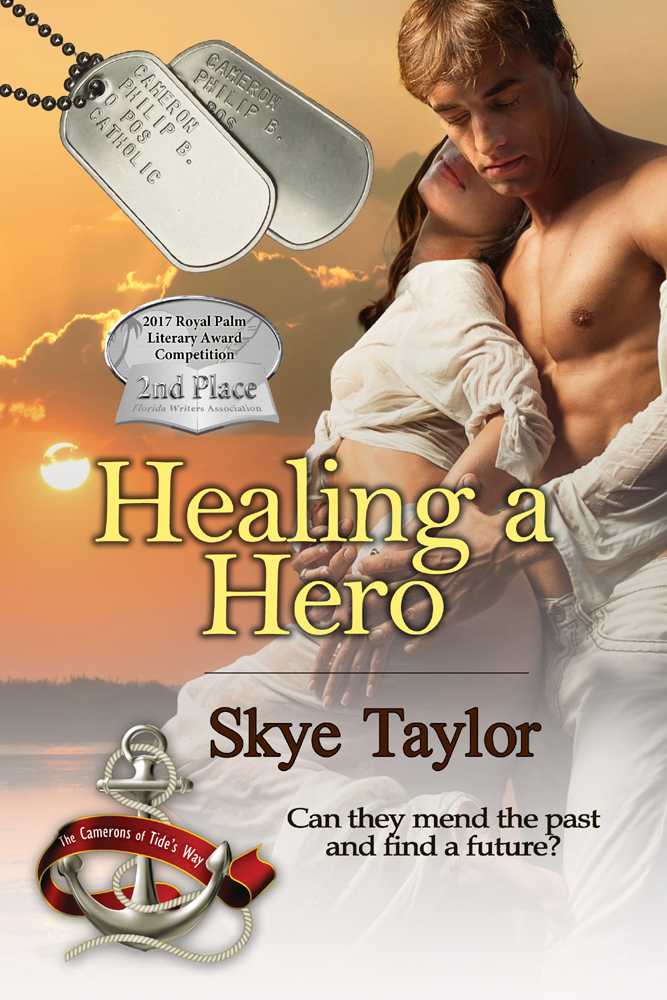 easily imagined. easily imagined.
XX
For most of my stories, though, the original nuggets came from asking myself the question, “What If?” In Loving Meg, I asked myself the question, “What if the soldier returning from a war zone was a woman? A wife who was called up unexpectedly and left a husband and children behind?
In Healing a Hero, the question was, what if two people fell in love years ago and were separated through circumstances beyond their control and now they are thrown back together with all the distrust misunderstandings can create? The rest of the books in that series were deliberately created because my acquiring editor wanted a series. Since I’d given the family 5 kids, that was my series connection and each ensuing story involved a different sibling for which I had to just brainstorm ideas for.
XX
When I decided to try writing a mystery, my first stop was to sign up for the Citizen’s Law Enforcement Academy with my local sheriff’s office. Each class focused on a different aspect of law enforcement, from the financial/budget and organization to special units like K-9, SWAT, negotiation, and the day-to-day life of a patrol deputy. Talk about a generator for ideas. Then came the ride-alongs. Getting to spend a whole shift with a deputy or police officer is another way to experience what life is like for the men and women who serve in law enforcement and an eye opener to the crazy things they see and are expected to handle every day. This was a “research” effort on my part to start with, but it planted so many thoughts and ideas along the way, each of which could be the basis for a whole new plot. Check out Bullseye and Crossfire.
XX
 One of my sources for ideas for new stories is my writing group – there are four of us and we call ourselves the Sandy Scribblers. We used to meet once a month at a local library but then Covid happened and the meetings moved to Zoom where they’ve stayed. We all write in different genres but I often think this is a plus because that helps to push the edges of the envelop for all of us. Sometimes we might be putting together a whole new One of my sources for ideas for new stories is my writing group – there are four of us and we call ourselves the Sandy Scribblers. We used to meet once a month at a local library but then Covid happened and the meetings moved to Zoom where they’ve stayed. We all write in different genres but I often think this is a plus because that helps to push the edges of the envelop for all of us. Sometimes we might be putting together a whole new  book idea and we start with the author’s nugget of an idea and throw ideas into the ring. While the author might not use all the ideas, just tossing them out there triggers responses and tweaks and the author takes home all this home to ponder on and choose what works and what doesn’t. This same process is great for when one of us has a sagging middle issue. We outline where we are and what’s not working out and the rest of the group puts forth ideas and possible fixes. Often we will send out a synopsis for an idea or a story half written before the meeting so other members of the group have time to consider the problems and maybe come up with solutions. It’s an excellent resource for ideas and for fine-tuning ideas. The best part of the meetings is the energy created and we all come out of the meeting excited about what we are doing and renewed momentum. book idea and we start with the author’s nugget of an idea and throw ideas into the ring. While the author might not use all the ideas, just tossing them out there triggers responses and tweaks and the author takes home all this home to ponder on and choose what works and what doesn’t. This same process is great for when one of us has a sagging middle issue. We outline where we are and what’s not working out and the rest of the group puts forth ideas and possible fixes. Often we will send out a synopsis for an idea or a story half written before the meeting so other members of the group have time to consider the problems and maybe come up with solutions. It’s an excellent resource for ideas and for fine-tuning ideas. The best part of the meetings is the energy created and we all come out of the meeting excited about what we are doing and renewed momentum.
XX
 Recently I’d just completed a first draft and was doing my first major edit for the first book in a brand new series and realized that half my story was nothing but a puff piece with little conflict going on. My son and I had discussed the plot back when I was about halfway through the book and he tossed an idea out there that I completely dismissed. It was a romance set during WWII and the “hero” of the story decided to enlist and put his wedding off until he returned. My son suggested he never come home. I’d tossed the idea because it was a romance and you don’t kill off the hero. But now I saw the holes and weakness of my plot and my son’s off the cuff suggestion came back to me. I revisited my original premise, and asked that trusty question, “What if Jeff didn’t come Recently I’d just completed a first draft and was doing my first major edit for the first book in a brand new series and realized that half my story was nothing but a puff piece with little conflict going on. My son and I had discussed the plot back when I was about halfway through the book and he tossed an idea out there that I completely dismissed. It was a romance set during WWII and the “hero” of the story decided to enlist and put his wedding off until he returned. My son suggested he never come home. I’d tossed the idea because it was a romance and you don’t kill off the hero. But now I saw the holes and weakness of my plot and my son’s off the cuff suggestion came back to me. I revisited my original premise, and asked that trusty question, “What if Jeff didn’t come  home?” I considered all the possibilities. My son intended that he be KIA, but as I began to rewrite the story, more ideas came to me. How to make him more of a jerk and someone else, unexpectedly turn out to be the hero of the story. As I wrote more ideas came to me, each feeding off something I’d tried earlier. Bottom line – the finished story was so much better than the original. It had more power, more emotion, and was far more compelling. I guess my advice here is: Don’t discount ideas that seem totally incongruous, rather, keep them simmering while you write and let the plot thicken. As with all the ideas thrown out by my Scribbler buddies, much of this will never end up in your story, but it can trigger other thoughts, plot twists and events that make the story far better than the original premise was. home?” I considered all the possibilities. My son intended that he be KIA, but as I began to rewrite the story, more ideas came to me. How to make him more of a jerk and someone else, unexpectedly turn out to be the hero of the story. As I wrote more ideas came to me, each feeding off something I’d tried earlier. Bottom line – the finished story was so much better than the original. It had more power, more emotion, and was far more compelling. I guess my advice here is: Don’t discount ideas that seem totally incongruous, rather, keep them simmering while you write and let the plot thicken. As with all the ideas thrown out by my Scribbler buddies, much of this will never end up in your story, but it can trigger other thoughts, plot twists and events that make the story far better than the original premise was.
XX
 BTW, the idea for the new series was triggered by a new reader. A lady who borrowed the first book of my previous romance series, loved it, and went out to buy the remaining 6 books. Then she found me on FB and discovered I was summering in Maine in a place she had often gone as a kid so we began to compare notes about what she remembered and what that unique little place was like today. In the end, she asked me why I didn’t write a new series set there. Once that seed was planted, it flourished and here I am working on book two in that new series set on Bailey Island, Maine. While this lady didn’t give me a plot idea, she gave me challenge to find a plot in a place that is a character all by itself. BTW, the idea for the new series was triggered by a new reader. A lady who borrowed the first book of my previous romance series, loved it, and went out to buy the remaining 6 books. Then she found me on FB and discovered I was summering in Maine in a place she had often gone as a kid so we began to compare notes about what she remembered and what that unique little place was like today. In the end, she asked me why I didn’t write a new series set there. Once that seed was planted, it flourished and here I am working on book two in that new series set on Bailey Island, Maine. While this lady didn’t give me a plot idea, she gave me challenge to find a plot in a place that is a character all by itself.
XX
 My last bit of advice on where any writer can start generating ideas is people watching. Even if you never get a bolt of lightning that triggers an entire plot, watching people will flesh out your characters and give you vignettes that add realism, humor and fun to your stories. Grocery stores, restaurants, airports, trains, city streets, shopping for school clothes, picking kids from daycare, hospital ERs, little league fields, golf courses – the list is endless and the people you see there from all walks of life, from toddlers to old geezers. And you never know when one of those small slices of life can blossom into an entire novel. My last bit of advice on where any writer can start generating ideas is people watching. Even if you never get a bolt of lightning that triggers an entire plot, watching people will flesh out your characters and give you vignettes that add realism, humor and fun to your stories. Grocery stores, restaurants, airports, trains, city streets, shopping for school clothes, picking kids from daycare, hospital ERs, little league fields, golf courses – the list is endless and the people you see there from all walks of life, from toddlers to old geezers. And you never know when one of those small slices of life can blossom into an entire novel.
XX
Now that you’ve traveled down my idea road, check out how these other authors find ideas for their stories.
XX
 Connie Vines Connie Vines
Diane Bator
Anne Stenhouse
Helena Fairfax
Judith Copek
Dr. Bob Rich
Saturday, May 18 2024
In today's Round Robin Blog we will talk about using the senses to put your readers right into the heart of your stories.
 For several years now, I’ve been judging a great writing contest that I believe in because you don’t just fork over your money and submit your work, then either win or not. Instead, whether published or unpublished, you get the rubrics with your scores in ten different areas of importance and comments or suggestions. No writer on the planet knows everything so even a multi published author might glean a new hint or idea, and unpublished, aspiring writers find out what worked and what didn’t work so they can go back to polish the piece before submitting it for publication. One of those areas of discussion is description, so I’ve had a few months now of reading a variety of new and not so new author’s work and experiencing how they have put me into the scene to experience what their characters are experiencing. For several years now, I’ve been judging a great writing contest that I believe in because you don’t just fork over your money and submit your work, then either win or not. Instead, whether published or unpublished, you get the rubrics with your scores in ten different areas of importance and comments or suggestions. No writer on the planet knows everything so even a multi published author might glean a new hint or idea, and unpublished, aspiring writers find out what worked and what didn’t work so they can go back to polish the piece before submitting it for publication. One of those areas of discussion is description, so I’ve had a few months now of reading a variety of new and not so new author’s work and experiencing how they have put me into the scene to experience what their characters are experiencing.
xxxxxXX
 One of the biggest problems I see with some writers (some that are already published even) is the desire to see everything, and thus the temptation to write in the Omniscient point of view. Omniscient can be a great point of view when well done, but far too often, the reader is left feeling like they are watching a movie rather than experiencing it. TV and movie producers are careful to set the scene authentically, but the big problem is that you are outside watching, no matter how well done. The advantage of a book is the reader can “feel” like he or she is smack dab in the middle of the action. It is the difference between telling and showing, which we’ve discussed before. Telling doesn’t engage the reader as completely as showing. One of the biggest problems I see with some writers (some that are already published even) is the desire to see everything, and thus the temptation to write in the Omniscient point of view. Omniscient can be a great point of view when well done, but far too often, the reader is left feeling like they are watching a movie rather than experiencing it. TV and movie producers are careful to set the scene authentically, but the big problem is that you are outside watching, no matter how well done. The advantage of a book is the reader can “feel” like he or she is smack dab in the middle of the action. It is the difference between telling and showing, which we’ve discussed before. Telling doesn’t engage the reader as completely as showing.
xx
 What a movie or television show cannot do is make you FEEL what is going on. You can’t feel the heat of a raging fire, or the frigid cold of a blizzard. You can’t smell the salty tang of fog, or the sweet scent of flowers. You can see the wind pulling at a character’s hair or clothes, but you can’t feel it. The senses we are all most aware of are: Smell, taste, hearing, vision/seeing, touch and also pain. There are two more that can come into play that we often overlook: Proprioception and vestibular. Proprioception is our awareness of our bodies in space. This sense is what causes your stomach to lurch when the elevator begins an abrupt descent, or the feeling of gravity, which most of us don’t pay much attention to unless we are piloting an airplane doing crazy maneuvers or living at the space station. Vestibular is another one we mostly ignore and that’s an awareness of how our bodies move, a heart racing in fear or perhaps our stomach growling with hunger. For this blog we will just address the first five. What a movie or television show cannot do is make you FEEL what is going on. You can’t feel the heat of a raging fire, or the frigid cold of a blizzard. You can’t smell the salty tang of fog, or the sweet scent of flowers. You can see the wind pulling at a character’s hair or clothes, but you can’t feel it. The senses we are all most aware of are: Smell, taste, hearing, vision/seeing, touch and also pain. There are two more that can come into play that we often overlook: Proprioception and vestibular. Proprioception is our awareness of our bodies in space. This sense is what causes your stomach to lurch when the elevator begins an abrupt descent, or the feeling of gravity, which most of us don’t pay much attention to unless we are piloting an airplane doing crazy maneuvers or living at the space station. Vestibular is another one we mostly ignore and that’s an awareness of how our bodies move, a heart racing in fear or perhaps our stomach growling with hunger. For this blog we will just address the first five.
zz
 It's easy to “tell” the reader that the air is crisp with the arrival of a winter wind. We might even tell the reader that our character shivered with the sudden cold. But the reader will feel that better if we put them in the scene: for instance: She hunched her shoulders as a blast of icy air shoved its way down her collar and every muscle in her body trembled at the intrusion. Can’t you just feel your own shoulders tensing in sympathy? It's easy to “tell” the reader that the air is crisp with the arrival of a winter wind. We might even tell the reader that our character shivered with the sudden cold. But the reader will feel that better if we put them in the scene: for instance: She hunched her shoulders as a blast of icy air shoved its way down her collar and every muscle in her body trembled at the intrusion. Can’t you just feel your own shoulders tensing in sympathy?
zz
 Likewise, we could tell the reader that the scent of fall was in the air, with piles of burning leaves in the gutters as families raked up the colorful masses from their front lawns. Or we could suggest that: Colin’s eyes smarted as a gust of wind blew the smoke into his face. We’ve all experienced such an event, maybe not with fall leaves, but around a campfire, or watching a controlled burn, or a house fire, so we sympathize with Colin. We know how it felt. Likewise, we could tell the reader that the scent of fall was in the air, with piles of burning leaves in the gutters as families raked up the colorful masses from their front lawns. Or we could suggest that: Colin’s eyes smarted as a gust of wind blew the smoke into his face. We’ve all experienced such an event, maybe not with fall leaves, but around a campfire, or watching a controlled burn, or a house fire, so we sympathize with Colin. We know how it felt.
zz
 We could say Sam fell hard and bit his tongue, tasting the blood. But what if we told it like this? Sam slammed down on the ice. It had been years since he’d last gone ice skating and he’d forgotten how hard ice was, or how shocking the blow to a tailbone that came abruptly in contact with it. Then the coppery taste of his own blood told him he’d bit his tongue as well. Which of these two descriptions puts you into the scene best? We could say Sam fell hard and bit his tongue, tasting the blood. But what if we told it like this? Sam slammed down on the ice. It had been years since he’d last gone ice skating and he’d forgotten how hard ice was, or how shocking the blow to a tailbone that came abruptly in contact with it. Then the coppery taste of his own blood told him he’d bit his tongue as well. Which of these two descriptions puts you into the scene best?
xx
 How about, her lover’s touch was gentle, almost too gentle, as opposed to: his fingers traced a shivery line from her chin down to the tip of her breast, setting off tiny flares of desire that made her ache for more. How about, her lover’s touch was gentle, almost too gentle, as opposed to: his fingers traced a shivery line from her chin down to the tip of her breast, setting off tiny flares of desire that made her ache for more.
xx
x
xx
Who knew the cymbals would be right behind my head when the player clashed them together with a loud reverberation? Or: It felt like the damned cymbals were inside my head, crashing into my brain and echoing out through my ears.
 Another sound most of us can relate to is that of a crashing car. An author taking the easy way out might say the speeding truck smashed into the parked car with a sickening crunch of metal on metal. But a good writer might get into the down and dirty with: No way that kid in the speeding truck could have lived through that sick sounding collision with the parked car. Screeching tires burned hot against brakes applied too late. Metal scraped against metal gouging deadly gashes along the way. Then came the splintering shatter of breaking glass, a hiss of steam venting from the overtaxed engine and finally the dead silence when all motion stopped. Of course, the writer could go on to add the smell or sight of the crash. Another sound most of us can relate to is that of a crashing car. An author taking the easy way out might say the speeding truck smashed into the parked car with a sickening crunch of metal on metal. But a good writer might get into the down and dirty with: No way that kid in the speeding truck could have lived through that sick sounding collision with the parked car. Screeching tires burned hot against brakes applied too late. Metal scraped against metal gouging deadly gashes along the way. Then came the splintering shatter of breaking glass, a hiss of steam venting from the overtaxed engine and finally the dead silence when all motion stopped. Of course, the writer could go on to add the smell or sight of the crash.
xx
And never forget the "little" sounds that set the scene. The gentle eddy of water along the shore of a lake. The crickets chirping on a walk home in the dark. The sizzle of bacon frying. The drip of faucet your character has been meaning to fix but never gets around to, or the creak of unoiled hinges. The cluck of hens on a farm, or the coo of pigeons in the city. The constant sound of traffic sets the scene near a highway. If there are horns tooting, perhaps it's a city. In the country, it's the lack of all those sounds - a quiet that lets the sound of the crickets be heard. It's those little sounds we grow so used to hearing we fail to notice them until they stop that set the reader firmly in that place and time.
zz
 Smell might be one of the harder senses to show the reader. We’ve all read about the sweet smell of roses, but what IS that sweet smell. We all know what chocolate chip cookies smell like, too. But how to describe a scent. One of my high school English teacher asked us to describe a scent in 500 words for his first homework assignment. I honestly wish I still Smell might be one of the harder senses to show the reader. We’ve all read about the sweet smell of roses, but what IS that sweet smell. We all know what chocolate chip cookies smell like, too. But how to describe a scent. One of my high school English teacher asked us to describe a scent in 500 words for his first homework assignment. I honestly wish I still  had a copy of that paper. I got an A+ after being certain I’d fail. I described the scent of sheets fresh off the line. Of course, in today’s world not many American’s could relate to that anyway given we all shove our sheets in dryers and the only scent is whatever the dryer sheet we add has been imbued with. Romance writers love to describe a hero’s cologne as having a musky odor. In all honestly, that doesn’t really turn me on, but it takes all kinds, I guess. Telling about an odor would use words like acrid, pungent, sweet, putrid, minty, or flowery, had a copy of that paper. I got an A+ after being certain I’d fail. I described the scent of sheets fresh off the line. Of course, in today’s world not many American’s could relate to that anyway given we all shove our sheets in dryers and the only scent is whatever the dryer sheet we add has been imbued with. Romance writers love to describe a hero’s cologne as having a musky odor. In all honestly, that doesn’t really turn me on, but it takes all kinds, I guess. Telling about an odor would use words like acrid, pungent, sweet, putrid, minty, or flowery,  so showing a scent requires more comparison. The smell of fresh baked bread might be yeasty, but if you’ve never smelled yeast, or fresh baked products raised with yeast, that kind of leaves you with a big blank. But how about this? The kitchen had a clean, so showing a scent requires more comparison. The smell of fresh baked bread might be yeasty, but if you’ve never smelled yeast, or fresh baked products raised with yeast, that kind of leaves you with a big blank. But how about this? The kitchen had a clean,  slightly sweet, yeasty aroma that somehow smelled warm, like you were inhaling a blanket on a cold winter day. Chocolate chip cookies might have a sweet, sugary, vanilla scent overlaid with rich hints of chocolate that always made your mouth water. Rain might have an earthy smell to it. Fog might have a damp, salty tang. And a campfire might have hints of pine in the smoke. slightly sweet, yeasty aroma that somehow smelled warm, like you were inhaling a blanket on a cold winter day. Chocolate chip cookies might have a sweet, sugary, vanilla scent overlaid with rich hints of chocolate that always made your mouth water. Rain might have an earthy smell to it. Fog might have a damp, salty tang. And a campfire might have hints of pine in the smoke.
xx
 And then there’s pain. In the ER they always want you to describe your pain on a scale of 1 to 10. But there are so many variations. To just tell a reader that his head ached, or his stubbed toe throbbed, is telling. How about if the author told you his headache felt like those cymbals crashing inside? Or if it felt like his head was in a vice? Or it hurt so bad he thought his eyeballs must be bulging? Does that give you a better idea just how much his head hurt? Or that toe that throbbed. If the writer instead told it like this: “God damn it!” Damned box in the wrong place. I’m going to kill that kid for leaving it there. I hopped on the other foot, unable to put weight on my injured toe for several minutes and even then the stabbing pain shot up my leg like a knife. And then there’s pain. In the ER they always want you to describe your pain on a scale of 1 to 10. But there are so many variations. To just tell a reader that his head ached, or his stubbed toe throbbed, is telling. How about if the author told you his headache felt like those cymbals crashing inside? Or if it felt like his head was in a vice? Or it hurt so bad he thought his eyeballs must be bulging? Does that give you a better idea just how much his head hurt? Or that toe that throbbed. If the writer instead told it like this: “God damn it!” Damned box in the wrong place. I’m going to kill that kid for leaving it there. I hopped on the other foot, unable to put weight on my injured toe for several minutes and even then the stabbing pain shot up my leg like a knife.
zz
 It is always important to set the scene with great description and most authors get this. We are great at describing a dark and spooky cemetery or the clatter and bustle of the hallway in a school when the bell rings with images that bring the scene to the reader’s mind. But adding the senses draws them right into that noisy hallway with chattering classmates, the crash of books in lockers, locker doors being slammed shut, the scent of someone’s week old gym shorts when a locker is opened. The same goes with the cemetery, with the creak of bare branches rattling or scraping together, long inky dark shadows crossing your path, or the hoot of an owl. The next time you consider doing it the easy way, ask yourself, do I want to tell the reader what it looks, smells, feels, sounds or tastes like, or do I want to find a way to make those senses come to life for them? It is always important to set the scene with great description and most authors get this. We are great at describing a dark and spooky cemetery or the clatter and bustle of the hallway in a school when the bell rings with images that bring the scene to the reader’s mind. But adding the senses draws them right into that noisy hallway with chattering classmates, the crash of books in lockers, locker doors being slammed shut, the scent of someone’s week old gym shorts when a locker is opened. The same goes with the cemetery, with the creak of bare branches rattling or scraping together, long inky dark shadows crossing your path, or the hoot of an owl. The next time you consider doing it the easy way, ask yourself, do I want to tell the reader what it looks, smells, feels, sounds or tastes like, or do I want to find a way to make those senses come to life for them?
zzz
 Anne Stenhouse Anne Stenhouse
Connie Vines
Helena Fairfax
Bob Rich
Saturday, April 20 2024
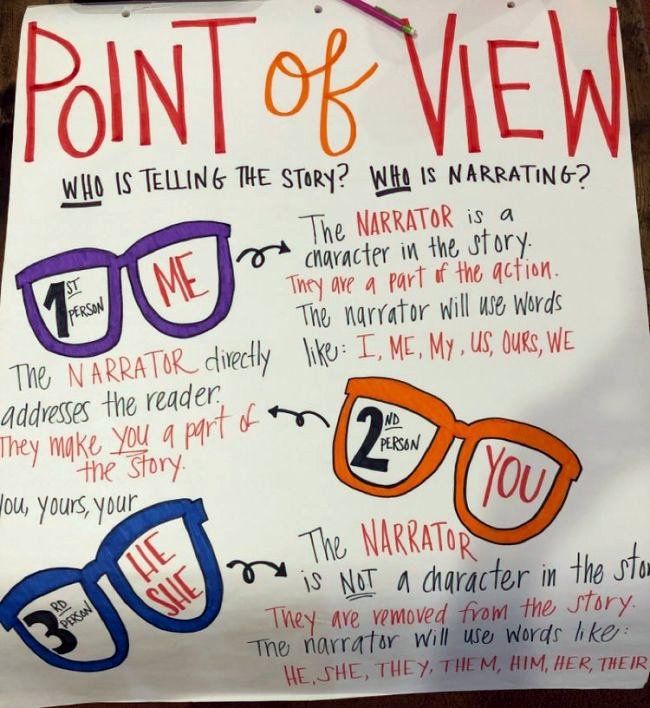 Our April Round Robin Blog Hop asks the question: What is your favorite point of view to write or read and why? Our April Round Robin Blog Hop asks the question: What is your favorite point of view to write or read and why?
What advantages might 1st person, 3rd person limited or 3rd person omniscient POVs have? What disadvantages?
XX
Point of View is a critical piece of all writing, fiction and non-fiction. The only time I’ve see 2nd person POV, however is in instructions. As in: First you want to remove the cover, then you will see . . . Sometimes I guess it might appear in things like travel guides. “Be sure you don’t miss walking right up to the protective fence and looking down into the Grand Canyon to get the full effect.” Or, “If you arrive after dark, be sure you get the correct camp site. There will be numbers at each site . . .” Most non-fiction is in 3rd person, but fiction can be in 1st, 3rd limited or 3rd person omniscient. In other words, WHO is telling the story? What are the advantages and disadvantages of each?
XX
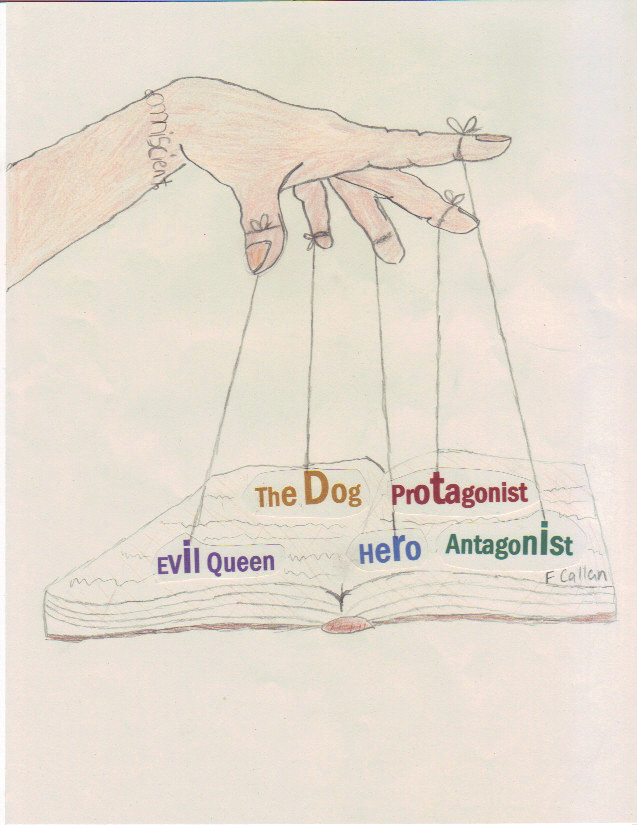 I’m going to start with 3rd person Omniscient because it’s my least favorite. Here we have a narrator telling the story. The only advantage is that the author and reader can see into other heads and know what all the characters are thinking. Like God, way above the fray but looking down and knowing what everyone is doing at the same time. But the downside to this is that it distances the reader from the characters because it removes the immediacy of emotion. The reader is not looking at the world through the eyes of any specific character, thus the reader never gets close to the character. Another disadvantage is that it takes away some of the suspense. If the reader knows what everyone is up to, it removes the unknown and takes away some of the adventure and suspense. Another thing that authors who write in omniscient point of view tend to do is use phrases like, “little did he know . . .” or “It would be the last thing he ever saw.” Now the surprise is totally taken out of the picture because the reader already knows what’s coming next. No need to dive right into the next chapter because the there’s no suspense left. 3rd person Omniscient is very like the difference between SHOWING the reader what’s happening and TELLING them. Telling is less immediate. Less emotional. I’m old enough that I remember when news reporters told us the news without a slant. I had NO idea Walter Cronkite had a liberal point of view because he just told us what happened. No embellishment, no emotion, no opinion. Just the facts. I’m going to start with 3rd person Omniscient because it’s my least favorite. Here we have a narrator telling the story. The only advantage is that the author and reader can see into other heads and know what all the characters are thinking. Like God, way above the fray but looking down and knowing what everyone is doing at the same time. But the downside to this is that it distances the reader from the characters because it removes the immediacy of emotion. The reader is not looking at the world through the eyes of any specific character, thus the reader never gets close to the character. Another disadvantage is that it takes away some of the suspense. If the reader knows what everyone is up to, it removes the unknown and takes away some of the adventure and suspense. Another thing that authors who write in omniscient point of view tend to do is use phrases like, “little did he know . . .” or “It would be the last thing he ever saw.” Now the surprise is totally taken out of the picture because the reader already knows what’s coming next. No need to dive right into the next chapter because the there’s no suspense left. 3rd person Omniscient is very like the difference between SHOWING the reader what’s happening and TELLING them. Telling is less immediate. Less emotional. I’m old enough that I remember when news reporters told us the news without a slant. I had NO idea Walter Cronkite had a liberal point of view because he just told us what happened. No embellishment, no emotion, no opinion. Just the facts.
XX
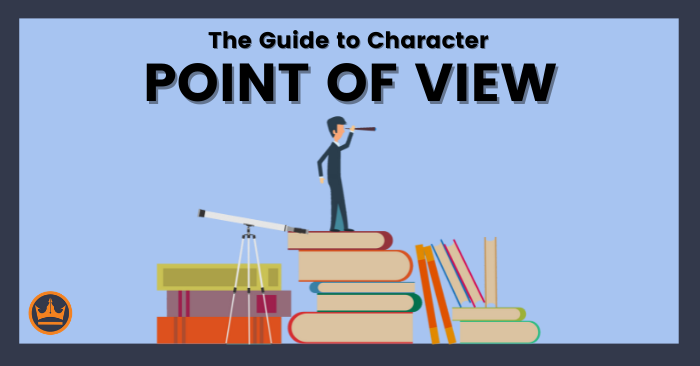 Often an author will show more than one character’s POVs in different chapters or scenes – this isn’t what 3rd person omniscient is. Let’s suppose the story is told first from Joe’s point of view, where he is eager to propose to Mary. He’s wearing her favorite shirt and putting on cologne which he usually doesn’t wear, so the reader senses how important this is for him and can’t wait for her to say yes. But then the author lets the reader into Mary’s head and she’s trying to figure out how to let Joe down easy, or she’s thinking of a different man and now the reader is heartbroken for Joe and wondering how this is going to work out. Or maybe the reader understands that Mary is sorry she knows she’s going to hurt him, but she just doesn’t love him that way. Seeing this issue from inside the two main characters’ heads puts the reader right there, feeling what they are feeling and closer than someone like God telling it from above. This distance is why I personally don’t enjoy either writing or reading in omniscient. I want to be in love, feel fear, triumph, sadness etc. I want to be IN the head and heart of the character. I want to be as surprised by what’s coming next as the character is. Often an author will show more than one character’s POVs in different chapters or scenes – this isn’t what 3rd person omniscient is. Let’s suppose the story is told first from Joe’s point of view, where he is eager to propose to Mary. He’s wearing her favorite shirt and putting on cologne which he usually doesn’t wear, so the reader senses how important this is for him and can’t wait for her to say yes. But then the author lets the reader into Mary’s head and she’s trying to figure out how to let Joe down easy, or she’s thinking of a different man and now the reader is heartbroken for Joe and wondering how this is going to work out. Or maybe the reader understands that Mary is sorry she knows she’s going to hurt him, but she just doesn’t love him that way. Seeing this issue from inside the two main characters’ heads puts the reader right there, feeling what they are feeling and closer than someone like God telling it from above. This distance is why I personally don’t enjoy either writing or reading in omniscient. I want to be in love, feel fear, triumph, sadness etc. I want to be IN the head and heart of the character. I want to be as surprised by what’s coming next as the character is.
XX
 So, that leaves us with 3rd person limited and 1st person. Most writers seem to prefer 3rd person limited. Limited simply means you tell only one point of view at a time, but from the character’s level rather than the narrator who sees all. You can only see, think, feel or hear what that character is seeing, thinking, feeling or hearing. That’s 3rd person limited. Now the text would read: Joe put on Mary’s favorite shirt. She always told him his blue eyes looked bluer with that shirt and tonight he needed everything on his side. He added after shave that he thought she might like and took one last look at himself in the mirror. “Okay,” he said to himself. “Time to get it done.” So, that leaves us with 3rd person limited and 1st person. Most writers seem to prefer 3rd person limited. Limited simply means you tell only one point of view at a time, but from the character’s level rather than the narrator who sees all. You can only see, think, feel or hear what that character is seeing, thinking, feeling or hearing. That’s 3rd person limited. Now the text would read: Joe put on Mary’s favorite shirt. She always told him his blue eyes looked bluer with that shirt and tonight he needed everything on his side. He added after shave that he thought she might like and took one last look at himself in the mirror. “Okay,” he said to himself. “Time to get it done.”
XX
In 1st person this might read: I put on the blue shirt that Mary always told me made my eyes look bluer. I figured she just liked blue shirts, but tonight I hope it’s because she loves my blue eyes. I’d loved that woman from the moment I met her, and I pray she feels the same. I dabbed on some aftershave I thought she’d like too and gave my reflection one last check in the mirror. “Okay,” I muttered. “Time to get it done.” So, maybe I did add a bit more emotion here, but the reader gets the idea – Joe is going to be heartbroken if she doesn’t say yes, and they are as invested in her answer as he is. Even if the author never lets you into Mary’s point of view, there’s a bit of suspense here.
XX
 I enjoy reading both 3rd person limited and 1st, but if I have a favorite, I’d have to admit to liking 1st person best. It feels more immediate. I AM that character, feeling, seeing, experiencing all the things the character is feeling, seeing and experiencing. But that’s just me and 3rd person limited can draw the reader in just as firmly. The biggest disadvantage of 1st person is that you never get into the head of other characters (in most cases – more about that later.) It takes a really skilled writer to let the reader think and feel what non point of view characters are feeling, or thinking. One my all-time favorite books (long before the series on Starz and who doesn’t love Sam Heughan?) is Outlander. Diana Gabaldon told that story in the first book of the series entirely in 1st person from Claire’s point of view, but she was a master at revealing Jamie’s thoughts and emotions via ‘tells’ that Claire grew to know well. He had a habit of tapping a finger against his thigh when he was agitated or in disagreement for example. And the dialog also revealed much of what was going on in his head. As the series got longer and the cast of characters longer Gabaldon began to add other points of view, but that first book was a master of how to write 1st person and still let the reader in on other character’s feelings, experience and thoughts. I enjoy reading both 3rd person limited and 1st, but if I have a favorite, I’d have to admit to liking 1st person best. It feels more immediate. I AM that character, feeling, seeing, experiencing all the things the character is feeling, seeing and experiencing. But that’s just me and 3rd person limited can draw the reader in just as firmly. The biggest disadvantage of 1st person is that you never get into the head of other characters (in most cases – more about that later.) It takes a really skilled writer to let the reader think and feel what non point of view characters are feeling, or thinking. One my all-time favorite books (long before the series on Starz and who doesn’t love Sam Heughan?) is Outlander. Diana Gabaldon told that story in the first book of the series entirely in 1st person from Claire’s point of view, but she was a master at revealing Jamie’s thoughts and emotions via ‘tells’ that Claire grew to know well. He had a habit of tapping a finger against his thigh when he was agitated or in disagreement for example. And the dialog also revealed much of what was going on in his head. As the series got longer and the cast of characters longer Gabaldon began to add other points of view, but that first book was a master of how to write 1st person and still let the reader in on other character’s feelings, experience and thoughts.
X
 3rd Person limited Point of view is the more common option and perhaps a little easier to write. And, well done can draw the reader in just as firmly as 1st person does, but for all the point of view characters, not just the main character. The disadvantage here, is actually less a disadvantage as a pitfall new writers often fall into – Head-hopping. Most authors change points of view when a scene or chapter changes and stay in that person’s head for the duration. About the only time this really needs to switch is if it’s a romance. And then only in a really critical scene like the first time they make love. The reader is eager to know how both parties are reacting to this life changing event, but it has to be done carefully so the reader is pulled into the other head without realizing it. If the change is abrupt or feels wrong, the reader will be scratching their head and stopping to go back and see who was feeling, or thinking this particular emotion or thought. Head-hopping, the pitfall, is when the author constantly jumps from one head to the other and the reader is never sure who’s thinking or feeling what. It jerks the reader out of the story trying to figure it out. And jerking the reader out of the story is never good. It also tends to distance the reader from either character much like 3rd person omniscient does. Head hopping is not just thought or emotion, but also action. 3rd Person limited Point of view is the more common option and perhaps a little easier to write. And, well done can draw the reader in just as firmly as 1st person does, but for all the point of view characters, not just the main character. The disadvantage here, is actually less a disadvantage as a pitfall new writers often fall into – Head-hopping. Most authors change points of view when a scene or chapter changes and stay in that person’s head for the duration. About the only time this really needs to switch is if it’s a romance. And then only in a really critical scene like the first time they make love. The reader is eager to know how both parties are reacting to this life changing event, but it has to be done carefully so the reader is pulled into the other head without realizing it. If the change is abrupt or feels wrong, the reader will be scratching their head and stopping to go back and see who was feeling, or thinking this particular emotion or thought. Head-hopping, the pitfall, is when the author constantly jumps from one head to the other and the reader is never sure who’s thinking or feeling what. It jerks the reader out of the story trying to figure it out. And jerking the reader out of the story is never good. It also tends to distance the reader from either character much like 3rd person omniscient does. Head hopping is not just thought or emotion, but also action.
XX
 Example: Joe went down on one knee in spite of the old football injury that still hurt sometimes. This is how it’s supposed to be done, and he was determined to do it right. Crunch time. How to say this without sounding trite?” Mary sighed, not sure how to break it to this man kneeling in front of her. “Will you marry me?” His hopeful look said it all. Joe’s heart thundered in his ears. Amazing that Mary couldn’t hear it trying to pound its way out of his chest. Example: Joe went down on one knee in spite of the old football injury that still hurt sometimes. This is how it’s supposed to be done, and he was determined to do it right. Crunch time. How to say this without sounding trite?” Mary sighed, not sure how to break it to this man kneeling in front of her. “Will you marry me?” His hopeful look said it all. Joe’s heart thundered in his ears. Amazing that Mary couldn’t hear it trying to pound its way out of his chest.
XX
In this paragraph we start in Joe’s POV, and then hop to Mary’s, then back to Joe, to Mary and finally back to Joe. The comment, how to say this without sounding trite could have been either Joe or Mary, but I wrote it as Mary trying to rehearse in her head how to say no without sounding trite. Then Joe asks her to marry him. Definitely Joe’s line and should have been in a new paragraph to start with. But there’s no way Joe can see his own face so the next line ‘His hopeful look . . .” is in Mary’s POV. Then we are back in Joe’s head experiencing his angst with his heart pounding. All this back and forth leaves the reader confused about who’s thinking or feeling what and stopping to read back to see if they can orient themselves again. Pulling the reader from the story, as I mentioned before, is the last thing an author wants to do.
XX
 One last thing I’d like to add before sending you off to see what other authors think about the whole Point of View question. There are a few writers who have done both 1st and 3rd limited in the same story. I just recently tried it with the first book in my new series. A whole new challenge but I was happy with the result. I’m sure when I sit down to start my first round of edits I’ll find a raft of mistakes, but that’s what edits and rewrites are for. In this novel, I have two stories being told. The first is in the present day and my heroine is my main character. I’ve told her part in 1st person. The other main character in the present time is Sam. (It is a romance so there is a hero of course.) I’ve told his chapters Sam’s 3rd person limited point of view. The second story is historic and told partly from the heroine’s point of view in 3rd person limited and partly through the letters sent home to her from the hero who is fighting in Europe in WWII. I preface every chapter with a heading. Kenzie – Present Day, Sam – Present Day or Hannah 1943 (44, 45 and 46) In this way the reader knows right at the start whose point of view they are seeing this chapter from and I don’t deviate, so I never lose the reader along the way. Telling two stories in two eras necessitated me having a chapter heading to orient the reader anyway. One last thing I’d like to add before sending you off to see what other authors think about the whole Point of View question. There are a few writers who have done both 1st and 3rd limited in the same story. I just recently tried it with the first book in my new series. A whole new challenge but I was happy with the result. I’m sure when I sit down to start my first round of edits I’ll find a raft of mistakes, but that’s what edits and rewrites are for. In this novel, I have two stories being told. The first is in the present day and my heroine is my main character. I’ve told her part in 1st person. The other main character in the present time is Sam. (It is a romance so there is a hero of course.) I’ve told his chapters Sam’s 3rd person limited point of view. The second story is historic and told partly from the heroine’s point of view in 3rd person limited and partly through the letters sent home to her from the hero who is fighting in Europe in WWII. I preface every chapter with a heading. Kenzie – Present Day, Sam – Present Day or Hannah 1943 (44, 45 and 46) In this way the reader knows right at the start whose point of view they are seeing this chapter from and I don’t deviate, so I never lose the reader along the way. Telling two stories in two eras necessitated me having a chapter heading to orient the reader anyway.
X
Now I’m going to send you off to see what my Round Robin Blog Hoppers offer on the subject.
X
Bob Rich -
Connie Vines
Diane Bator
Helena Fairfax
Victoria Chatham
Saturday, March 16 2024
 Research is an important part of writing, both non-fiction and fiction. For most writers of non-fiction it isn’t even questioned – you are writing about real places, real people, real events, or real stuff so you need to make sure all your facts are correct. Even if you’re writing a memoir – no one’s memory is perfect enough that you wouldn’t have to check at least a few facts during the writing. And since no one ever knows every minute detail even when you’re living through events, then writing about anything current would require some research. And for anything in the past, then historical research would be a must. Research is an important part of writing, both non-fiction and fiction. For most writers of non-fiction it isn’t even questioned – you are writing about real places, real people, real events, or real stuff so you need to make sure all your facts are correct. Even if you’re writing a memoir – no one’s memory is perfect enough that you wouldn’t have to check at least a few facts during the writing. And since no one ever knows every minute detail even when you’re living through events, then writing about anything current would require some research. And for anything in the past, then historical research would be a must.
XX
 But for fiction, I have, unfortunately read novels with a great premise, awesome characters and an engaging plot, only to be constantly turned off by details I know are wrong. Maybe someone wrote a story set in Boston but never mentions Faneuil Hall, the Ducklings or the Swan boats? Or one set in farm country that included city sewers and water. Sometimes it’s little stuff, like a book I read recently that talked about getting into and out of a kayak like it was a barge. Well, I’ve been in a kayak – they are tippy as hell and there’s a knack for getting in and out, that wouldn’t have taken the author that much researching to learn, even if he’d never done it himself. Revolvers do not leave shell casings behind so a mystery writer who includes them would be scoffed at. But for fiction, I have, unfortunately read novels with a great premise, awesome characters and an engaging plot, only to be constantly turned off by details I know are wrong. Maybe someone wrote a story set in Boston but never mentions Faneuil Hall, the Ducklings or the Swan boats? Or one set in farm country that included city sewers and water. Sometimes it’s little stuff, like a book I read recently that talked about getting into and out of a kayak like it was a barge. Well, I’ve been in a kayak – they are tippy as hell and there’s a knack for getting in and out, that wouldn’t have taken the author that much researching to learn, even if he’d never done it himself. Revolvers do not leave shell casings behind so a mystery writer who includes them would be scoffed at.
XX
 If you’ve never been on a ranch, but want to write a romance set on one, take the time to either visit one or read about them. If you want to include a real location in your story, then visit the place – best done in person, but with the ease of the internet, then at least visit it that way. Find out what the local teams are that the locals root for. Find out if all kids ride busses or perhaps some still walk to school. Look up the name of the area hospitals, hotels, grocery chains, theaters, the area newspaper, closest airport etc. Places are easy to research and if you have faithful readers who live in those places, they will be very upset to find stuff that doesn’t fit. Google maps makes it a piece of cake to get the logistics, street names, highways, bodies of water and anything else that makes the place real. If you’ve never been on a ranch, but want to write a romance set on one, take the time to either visit one or read about them. If you want to include a real location in your story, then visit the place – best done in person, but with the ease of the internet, then at least visit it that way. Find out what the local teams are that the locals root for. Find out if all kids ride busses or perhaps some still walk to school. Look up the name of the area hospitals, hotels, grocery chains, theaters, the area newspaper, closest airport etc. Places are easy to research and if you have faithful readers who live in those places, they will be very upset to find stuff that doesn’t fit. Google maps makes it a piece of cake to get the logistics, street names, highways, bodies of water and anything else that makes the place real.
XX
 I did mention, visiting in person was preferable – that’s for a lot of reasons. Some are just the “feel” of the place. I have never been to New Orleans, but if I were ever to write a book set there, I would most definitely spend some time there because everything I’ve read or heard about the city tells me the place has a very distinct vibe. Other times it’s familiarity with things you might not even think about. My contemporary romance series is set in a fictional coastal city in North Carolina roughly between Wilmington and Camp LeJeune. So, I did visit the area for a few days. I drove along the shore and when I saw a man trimming his lawn, I stopped to ask about the tides and the wind etc. Where I grew up in Mass, and later lived, in Maine, the tides were 9 ½ feet between high and low. Here in St Augustine, they are less than 5 feet, so I wanted to know what they were like in this part of North Carolina. Did they get northeast blows very often. How harsh were the winters? The man was happy to chat with me and gave me more information than I’d asked for. Driving by the entrance to the Wilmington airport, I decided to check it out as I’d already written a scene where my hero was waiting for his military wife to arrive, and he watched her legs appear as she I did mention, visiting in person was preferable – that’s for a lot of reasons. Some are just the “feel” of the place. I have never been to New Orleans, but if I were ever to write a book set there, I would most definitely spend some time there because everything I’ve read or heard about the city tells me the place has a very distinct vibe. Other times it’s familiarity with things you might not even think about. My contemporary romance series is set in a fictional coastal city in North Carolina roughly between Wilmington and Camp LeJeune. So, I did visit the area for a few days. I drove along the shore and when I saw a man trimming his lawn, I stopped to ask about the tides and the wind etc. Where I grew up in Mass, and later lived, in Maine, the tides were 9 ½ feet between high and low. Here in St Augustine, they are less than 5 feet, so I wanted to know what they were like in this part of North Carolina. Did they get northeast blows very often. How harsh were the winters? The man was happy to chat with me and gave me more information than I’d asked for. Driving by the entrance to the Wilmington airport, I decided to check it out as I’d already written a scene where my hero was waiting for his military wife to arrive, and he watched her legs appear as she  rode down the escalator. Turns out the Wilmington airport does not have an escalator. It’s all on one level. Oops! I’d have had that wrong and certainly someone would have noticed. Since there was no escalator for her to appear on, I walked right up to the exit for the secure area to see as much as I could of what my hero might see while waiting. TSA being what it is, a uniformed officer immediately approached to warn me that I couldn’t go there, so I explained why I had walked right up to the exit, and he immediately explained what it looked like just beyond what I could see. Then he directed me to the information desk where two lovely ladies filled me in with tons of details about the airport, the city, the river, local everything and handed me a fistful of flyers about hotels, restaurants, events, museums, and points of interest. I took a whole extra day checking out the places they told me were not to be missed. It was more than worth that little detour to check out a small airport. And as my series grew from that initial book, I was able to include Wilmington with realistic details because I’d been there. I still used Google Maps and the internet from time to time, but the feel of the small, friendly city was something I’d experienced. rode down the escalator. Turns out the Wilmington airport does not have an escalator. It’s all on one level. Oops! I’d have had that wrong and certainly someone would have noticed. Since there was no escalator for her to appear on, I walked right up to the exit for the secure area to see as much as I could of what my hero might see while waiting. TSA being what it is, a uniformed officer immediately approached to warn me that I couldn’t go there, so I explained why I had walked right up to the exit, and he immediately explained what it looked like just beyond what I could see. Then he directed me to the information desk where two lovely ladies filled me in with tons of details about the airport, the city, the river, local everything and handed me a fistful of flyers about hotels, restaurants, events, museums, and points of interest. I took a whole extra day checking out the places they told me were not to be missed. It was more than worth that little detour to check out a small airport. And as my series grew from that initial book, I was able to include Wilmington with realistic details because I’d been there. I still used Google Maps and the internet from time to time, but the feel of the small, friendly city was something I’d experienced.
XX
 When I set out to write a mystery, I signed up for the Citizen’s Law Enforcement Academy. Not only did I learn a lot, like a zillion times more than you see on TV about how local law enforcement operates, I got to go on ride-alongs with deputies on duty and see with my own eyes, the reality of the job. Not only did this give me ideas for my stories, as well as erase images that aren’t all that realistic, but it gave me access to deputies who were willing to answer any question that came up while I was writing. They tell us to ‘write what you know.’ But unless you only write one or two books, eventually your protagonists need to branch out into other areas of life, work and hobbies. Almost everyone I’ve approached to ask about their jobs or the milieu in which they work has been happy to share and some even let you shadow them. Want to write a teacher? Spend a day or more in a classroom. Visit a museum and follow the docent on their daily round. They are fountains of information. Hang out in an airport, a fire station, the mall or an ER, paying attention to the many different types of employees, how they do their jobs and how the public interacts with them. Some might call it people watching, but it’s really research for a writer looking to get the details realistic and right. When I set out to write a mystery, I signed up for the Citizen’s Law Enforcement Academy. Not only did I learn a lot, like a zillion times more than you see on TV about how local law enforcement operates, I got to go on ride-alongs with deputies on duty and see with my own eyes, the reality of the job. Not only did this give me ideas for my stories, as well as erase images that aren’t all that realistic, but it gave me access to deputies who were willing to answer any question that came up while I was writing. They tell us to ‘write what you know.’ But unless you only write one or two books, eventually your protagonists need to branch out into other areas of life, work and hobbies. Almost everyone I’ve approached to ask about their jobs or the milieu in which they work has been happy to share and some even let you shadow them. Want to write a teacher? Spend a day or more in a classroom. Visit a museum and follow the docent on their daily round. They are fountains of information. Hang out in an airport, a fire station, the mall or an ER, paying attention to the many different types of employees, how they do their jobs and how the public interacts with them. Some might call it people watching, but it’s really research for a writer looking to get the details realistic and right.
XX
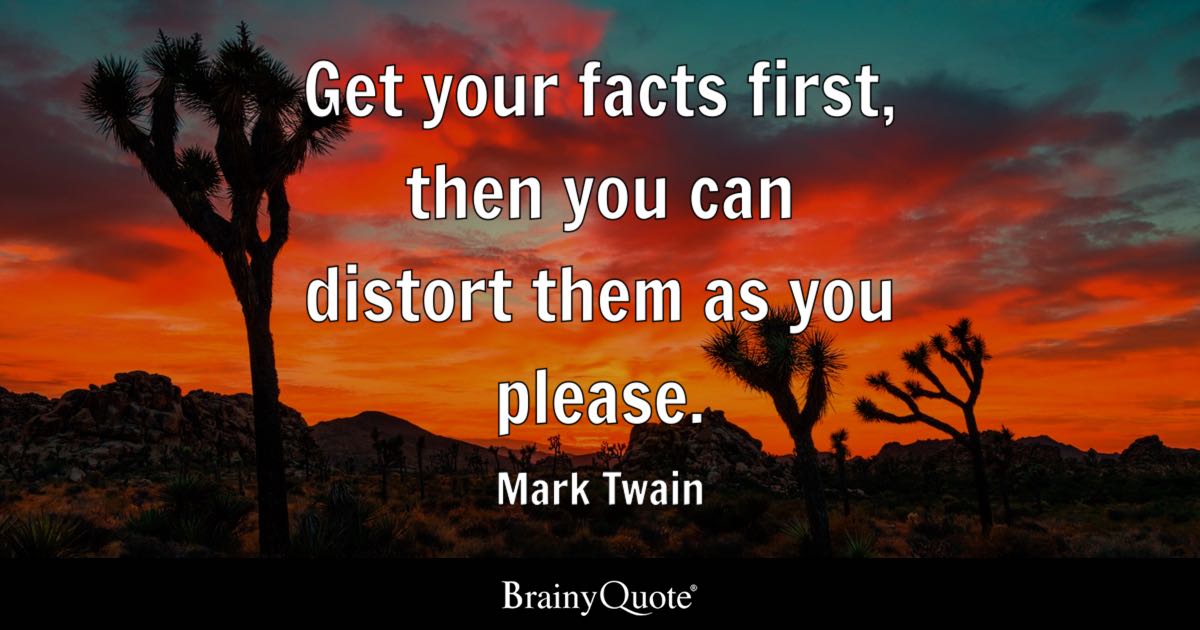 My first books were written long before the internet existed and much of the research was done in libraries. The internet makes it easy. But even with the internet, librarians can be a major source of finding just the right details to make your fictional worlds come to life. Of course, there can also be a downside to the internet. The first to be wary of is MISinformation. Doublecheck everything. The other for people me, is that it can be like going down the rabbit hole. I can get lost in a dictionary. Just looking up one word, but the page is full of words, and I tend to poke around. My vocabulary grows, but I spend more time there than intended. Which is how researching on the internet works for me. I look up one thing and there are links to dozens of other things, all of which just HAVE to be checked out. Good thing I’m retired, and I can afford to get lost checking out the bottomless pit of links. My first books were written long before the internet existed and much of the research was done in libraries. The internet makes it easy. But even with the internet, librarians can be a major source of finding just the right details to make your fictional worlds come to life. Of course, there can also be a downside to the internet. The first to be wary of is MISinformation. Doublecheck everything. The other for people me, is that it can be like going down the rabbit hole. I can get lost in a dictionary. Just looking up one word, but the page is full of words, and I tend to poke around. My vocabulary grows, but I spend more time there than intended. Which is how researching on the internet works for me. I look up one thing and there are links to dozens of other things, all of which just HAVE to be checked out. Good thing I’m retired, and I can afford to get lost checking out the bottomless pit of links.
XX
 I am currently writing a story, actually two stories intertwined set on Bailey Island Maine. One of the two stories is set current time. I spend several weeks there every summer and I lived in Maine for 20 years, but I still find things I need to check: the name of the assisted living home in nearby Brunswick, or is a particular restaurant open in the winter, what are the hours of the big super Walmart or my favorite local candy story. But the other story is set during WWII. So many little details to check out. I’d seen an image of thousands of soldiers crowding the deck of the RMS Queen Mary bringing American soldiers home when the war in Europe ended. Of course, I wanted to include that in the ending for my story, thus I had to make sure WHAT port that ship came to and when, how many times and how many men would have been aboard. Just an FYI – RMS Queen Mary still holds the all-time record for the number of people ever carried on any vessel: 16,683 souls on board, 15,740 American soldiers and 943 crewmembers. I am currently writing a story, actually two stories intertwined set on Bailey Island Maine. One of the two stories is set current time. I spend several weeks there every summer and I lived in Maine for 20 years, but I still find things I need to check: the name of the assisted living home in nearby Brunswick, or is a particular restaurant open in the winter, what are the hours of the big super Walmart or my favorite local candy story. But the other story is set during WWII. So many little details to check out. I’d seen an image of thousands of soldiers crowding the deck of the RMS Queen Mary bringing American soldiers home when the war in Europe ended. Of course, I wanted to include that in the ending for my story, thus I had to make sure WHAT port that ship came to and when, how many times and how many men would have been aboard. Just an FYI – RMS Queen Mary still holds the all-time record for the number of people ever carried on any vessel: 16,683 souls on board, 15,740 American soldiers and 943 crewmembers.
XX
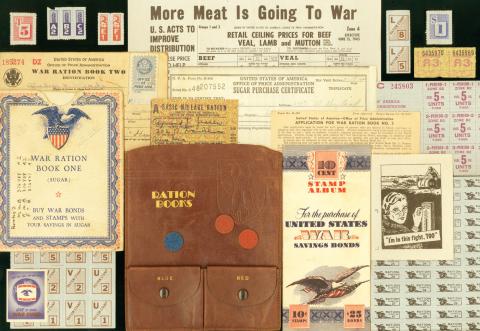 While this story is basically a romance, the hero was a soldier in Europe and his letters were how his story is told. I had to research how long it took letters to reach home or even IF they did. Another neat fact I learned was that early on, the US figured out how to reduce thousands of letters to microfiche and send them home by air, to be recreated in the states and delivered to their respective recipients far quicker than by ship. You see what I mean about the rabbit hole? But I also had to relearn details long forgotten from my history lessons about who, what, where and when things happened in Europe and how much Americans knew at the time. I have a few remaining While this story is basically a romance, the hero was a soldier in Europe and his letters were how his story is told. I had to research how long it took letters to reach home or even IF they did. Another neat fact I learned was that early on, the US figured out how to reduce thousands of letters to microfiche and send them home by air, to be recreated in the states and delivered to their respective recipients far quicker than by ship. You see what I mean about the rabbit hole? But I also had to relearn details long forgotten from my history lessons about who, what, where and when things happened in Europe and how much Americans knew at the time. I have a few remaining 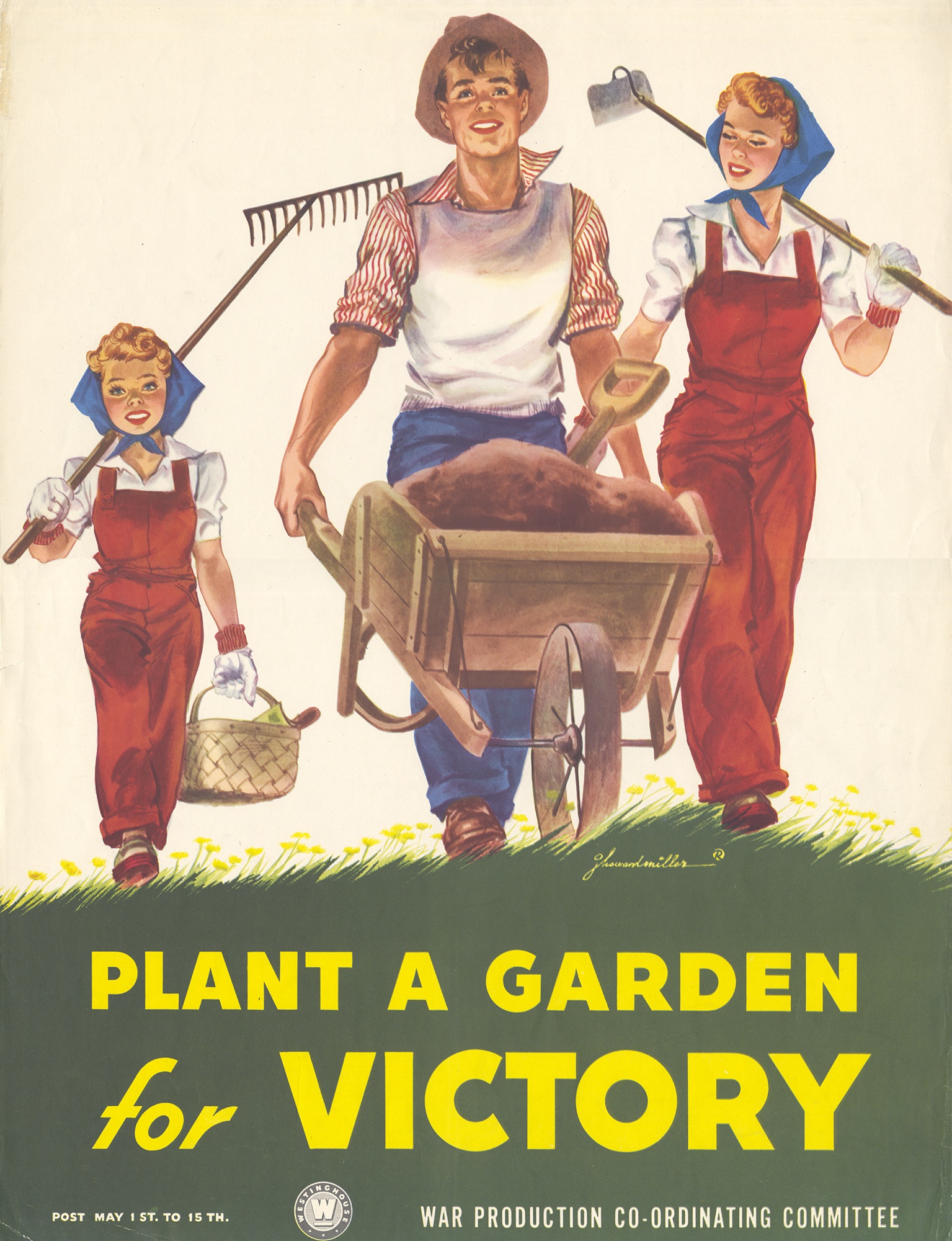 ration stamps in my baby book from after the war (Yes, I’m a baby boomer) so I needed to know more about rationing and life on the homefront. So many details I needed to know to make that story come to life and put my readers into that long ago world. Because my grandmother always called her backyard vegetable plot, her ‘victory garden’ I knew that women planted them, but what else did they do to help the war effort. Because my mom worked in a machine shop while my dad was off in the service, I also knew that for the first time in history, women were taking jobs left behind by the men who went to fight. I did not know that women all over the country were knitting socks and scarves to send to men fighting in the depths of winter or that observation towers were constructed to watch for German U-boats off our shores. It’s obvious that anyone who writes historical novels needs to do the research, no matter how much they think they know, but…… ration stamps in my baby book from after the war (Yes, I’m a baby boomer) so I needed to know more about rationing and life on the homefront. So many details I needed to know to make that story come to life and put my readers into that long ago world. Because my grandmother always called her backyard vegetable plot, her ‘victory garden’ I knew that women planted them, but what else did they do to help the war effort. Because my mom worked in a machine shop while my dad was off in the service, I also knew that for the first time in history, women were taking jobs left behind by the men who went to fight. I did not know that women all over the country were knitting socks and scarves to send to men fighting in the depths of winter or that observation towers were constructed to watch for German U-boats off our shores. It’s obvious that anyone who writes historical novels needs to do the research, no matter how much they think they know, but……
XX
EVERYONE should be researching to get the details right. Your readers care….
XX
Check out the rest of our Round Robin crew to see how they view researching for their writing:
XX
 Victoria Chatham Victoria Chatham
Diane Bator
Anne Stenhouse
Dr. Bob Rich
Connie Vines
Helena Fairfax
Saturday, February 17 2024
  It’s February and here we all are at the Round Robin Blog Hop to discuss GMC. You ask, what’s GMC? Well, it’s the backbone of all fiction writing from flash fiction to lengthy novels and includes all genres. Boil it down to easy to understand – What does the protagonist want? (Goal) Why does he or she want it? (Motivation) and What’s stopping him from attaining it? (Conflict.) It’s February and here we all are at the Round Robin Blog Hop to discuss GMC. You ask, what’s GMC? Well, it’s the backbone of all fiction writing from flash fiction to lengthy novels and includes all genres. Boil it down to easy to understand – What does the protagonist want? (Goal) Why does he or she want it? (Motivation) and What’s stopping him from attaining it? (Conflict.)
XX
It's this last bit that makes the story a page turner. In my journey as an author, I learned this concept from several authors with successful writing careers. I also have an exellent book written by a friend and editor that spells the whole concept out for readers of all levels of experience. Check out Goal, Motivation & Conflict by Debra Dixon - it's an excellent reference for your writer's shelf.
XX
Consider this example: If Jackie wants and ice cream, because he loves ice cream and his grandfather gave him money to get some, that’s goal and motivation. If the truck just happens to have stopped out front of his house and he dashes to the street, tells the man what he wants, hands over the money, and walks away with his ice cream there is no conflict. Nothing to write about.
XX
But what if he wants an ice cream and the truck is there, but he has no money? Or what if he has the money and has been waiting for the truck to come, but for some reason, it never came that day?  Or what if he runs to the truck and trips and falls and the cash he’d been clutching in his hand rolled down the storm drain? NOW there is a story. What is Jackie going to do now? Or what if he runs to the truck and trips and falls and the cash he’d been clutching in his hand rolled down the storm drain? NOW there is a story. What is Jackie going to do now?
XX
In that scenario, there is little Jackie can do to change some of the problems. He can’t crawl into the drain to retrieve his coins that disappeared into the water. And he can’t make the truck magically appear if it did, indeed, skip his street that day. But no money to start with might offer some solutions if he wants an ice cream bad enough. He could ask his dad if he’d give him the money. He might ask his mom if there is any chore she’d like done that he could do to earn the money. He could steal it out of his big sister’s purse. Or he could check the the floor around the driver’s seat in his grandfather’s truck because he knows his grandfather is always losing change out of his pocket. The choices he makes and the effort he expends to gain his goal is the story.
XX
 This is true of any genre. In a romance there are two protagonists who each have their personal goal and a reason for wanting it, and something in their way. But being a romance, this means the goals may be frustrated by the other character’s conflicting goal. He sees her and wants a date. But she’s been hurt and is reluctant to get involved with anyone. So, what is he going to do to change her mind and get her to say yes to a date? Maybe neither one of them is looking for someone to love. Both may have been hurt and built walls around their hearts. This is what is called the “inner” conflict. But there’s usually an outer conflict that is going to toss these two people together often enough, that they end up falling in love despite their initial reluctance. This outer conflict often includes opposing goals. Think of all the Hallmark movies you’ve ever seen. A common theme often includes one or the other trying to keep a family business going and the other one is trying to buy out the property for something that will kill the family business. That conflict is what needs to be resolved before they can have their happy ever after, and it’s what makes the story. This is true of any genre. In a romance there are two protagonists who each have their personal goal and a reason for wanting it, and something in their way. But being a romance, this means the goals may be frustrated by the other character’s conflicting goal. He sees her and wants a date. But she’s been hurt and is reluctant to get involved with anyone. So, what is he going to do to change her mind and get her to say yes to a date? Maybe neither one of them is looking for someone to love. Both may have been hurt and built walls around their hearts. This is what is called the “inner” conflict. But there’s usually an outer conflict that is going to toss these two people together often enough, that they end up falling in love despite their initial reluctance. This outer conflict often includes opposing goals. Think of all the Hallmark movies you’ve ever seen. A common theme often includes one or the other trying to keep a family business going and the other one is trying to buy out the property for something that will kill the family business. That conflict is what needs to be resolved before they can have their happy ever after, and it’s what makes the story.
XX
 Consider a police procedural – the detective is called in to figure out who was responsible for the dead body. Goal – find the killer, Motivation – that’s their job, Conflict – there are dozens of possibilities as evidenced by the long running police procedurals on TV and in written fiction. No ID for the dead body? No fingerprints or DNA left behind by the killer. Traffic and security cameras catch just a glimpse of the perp, who happened to be aware enough to never show his face. The detective has a handy person of interest who happens to have a good reason to kill, and no alibi, but turns out to be innocent and now the trail has gone cold to the real killer. The conflicts are endless and in real life many murders never get solved. Consider a police procedural – the detective is called in to figure out who was responsible for the dead body. Goal – find the killer, Motivation – that’s their job, Conflict – there are dozens of possibilities as evidenced by the long running police procedurals on TV and in written fiction. No ID for the dead body? No fingerprints or DNA left behind by the killer. Traffic and security cameras catch just a glimpse of the perp, who happened to be aware enough to never show his face. The detective has a handy person of interest who happens to have a good reason to kill, and no alibi, but turns out to be innocent and now the trail has gone cold to the real killer. The conflicts are endless and in real life many murders never get solved.
XX
I could go on with other genres, but I think you get the idea. If there is no conflict, there is no story. To keep your reader turning pages,  you need to keep them guessing, which means not giving away the resolution until the very last page. Some stories might be easy for a reader to guess how the main conflict might get resolved, so now the author needs to throw twists into the story – smaller conflicts that pop up to thwart the hero. Think of the Jack Reacher stories. We all know Reacher is going to win in the end and any fight he gets into he’s going to trounce the other guy, but along the way, he just seems to keep running into one conflict after another. He’s always minding his own business and his main goal is to just stay mobile and enjoy life and travel to different places. Yet he always seems to run into someone who’s struggling with something or a victim or someone caught up in an unfair fight. Being Reacher, his sense of fair play is his conflict. He can’t just ignore what he’s seen. He feels compelled to get involved and fix their problem, which now becomes his problem. If it’s a war story, there is always the enemy to defeat but that enemy is never as clueless as the characters on Hogan’s Heroes, and their plots, plans, and firepower become the conflict for our heroes. A spy story – pretty much the same. Pick a genre – ther’s always a conflict that needs to be overcome or resolved. you need to keep them guessing, which means not giving away the resolution until the very last page. Some stories might be easy for a reader to guess how the main conflict might get resolved, so now the author needs to throw twists into the story – smaller conflicts that pop up to thwart the hero. Think of the Jack Reacher stories. We all know Reacher is going to win in the end and any fight he gets into he’s going to trounce the other guy, but along the way, he just seems to keep running into one conflict after another. He’s always minding his own business and his main goal is to just stay mobile and enjoy life and travel to different places. Yet he always seems to run into someone who’s struggling with something or a victim or someone caught up in an unfair fight. Being Reacher, his sense of fair play is his conflict. He can’t just ignore what he’s seen. He feels compelled to get involved and fix their problem, which now becomes his problem. If it’s a war story, there is always the enemy to defeat but that enemy is never as clueless as the characters on Hogan’s Heroes, and their plots, plans, and firepower become the conflict for our heroes. A spy story – pretty much the same. Pick a genre – ther’s always a conflict that needs to be overcome or resolved.
XX
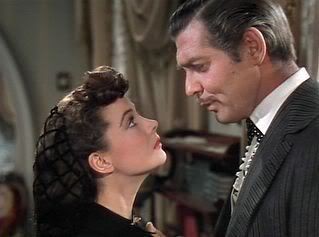 A story doesn’t always have to have a happy ending or a satisfying resolution. Consider Romeo and Juliette. Or Gone With the Wind. In the first neither party finds their happy ending, and both commit suicide rather than submit to their families' rivalries. In Gone With the Wind, Scarlett loves Ashley and wants him to return her love, but he’s in love with someone else. GWTW does not have the ending Scarlett wants and she even alienates Rhett who does love her. Who doesn’t remember his big line: “Frankly my dear, I don’t give a damn.” But, it’s those conflicts that make the stories memorable. A story doesn’t always have to have a happy ending or a satisfying resolution. Consider Romeo and Juliette. Or Gone With the Wind. In the first neither party finds their happy ending, and both commit suicide rather than submit to their families' rivalries. In Gone With the Wind, Scarlett loves Ashley and wants him to return her love, but he’s in love with someone else. GWTW does not have the ending Scarlett wants and she even alienates Rhett who does love her. Who doesn’t remember his big line: “Frankly my dear, I don’t give a damn.” But, it’s those conflicts that make the stories memorable.
XX
 If this entire concept has never occurred to you before, consider your favorite book of all time and ask yourself: What did my favorite character want? Why did he want it? And Why couldn’t he have it? I’m sure you’ll be able to answer all three questions and it was in resolving that last question that the book entertained and became a favorite. If this entire concept has never occurred to you before, consider your favorite book of all time and ask yourself: What did my favorite character want? Why did he want it? And Why couldn’t he have it? I’m sure you’ll be able to answer all three questions and it was in resolving that last question that the book entertained and became a favorite.
XX
Want another take on GMC – check out my fellow Round Robin Blog Hoppers”

Dr. Bob Rich
Anne Stenhouse
Victoria Chatham
Connie Vines
Helena Fairfax
Diane Bator
|